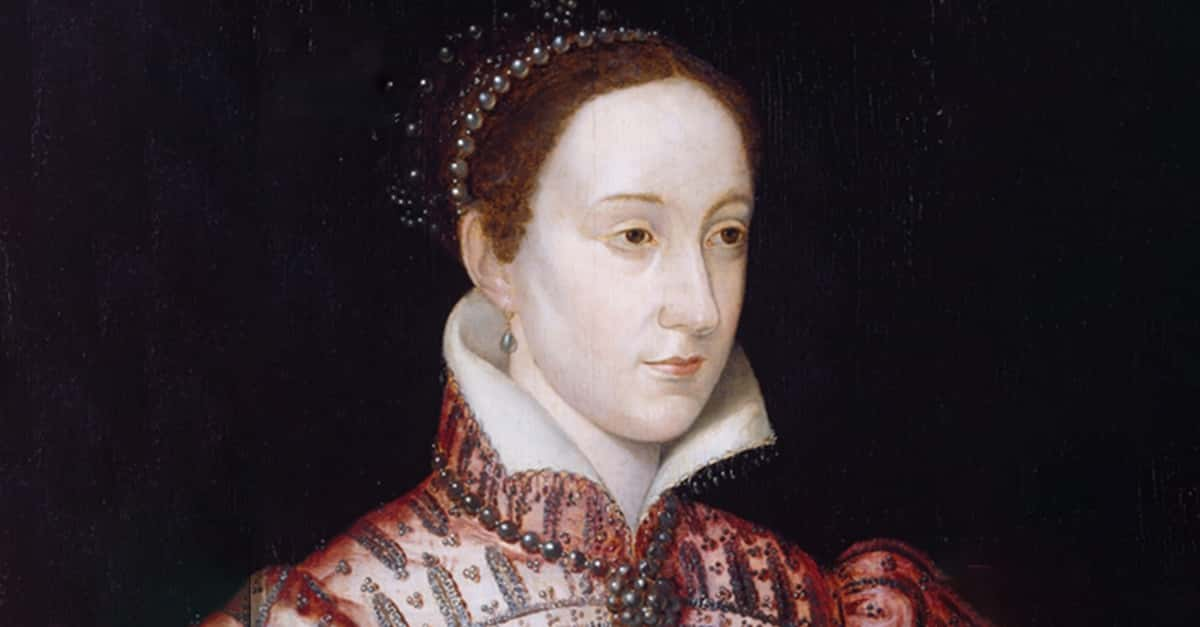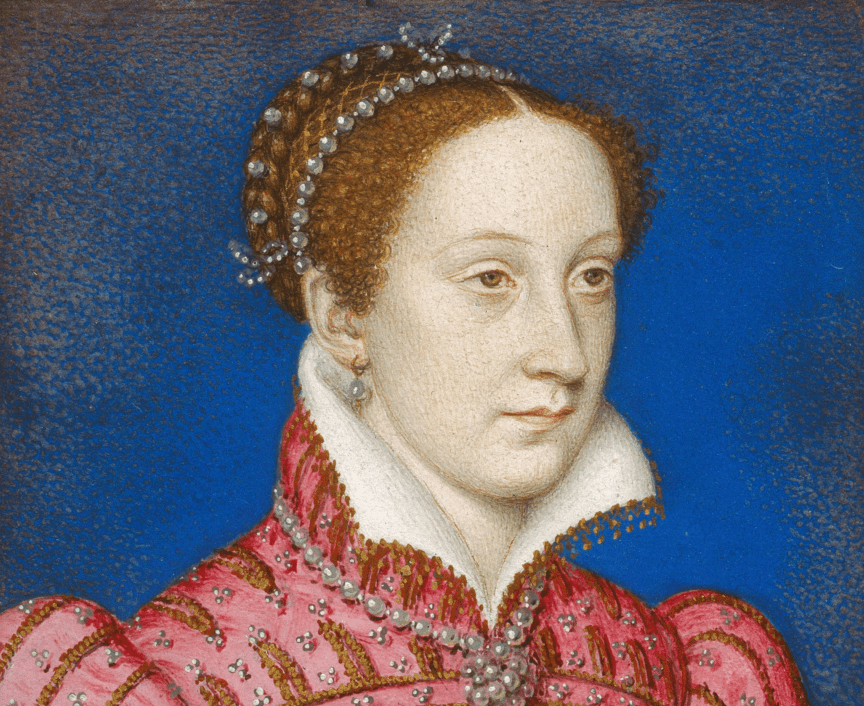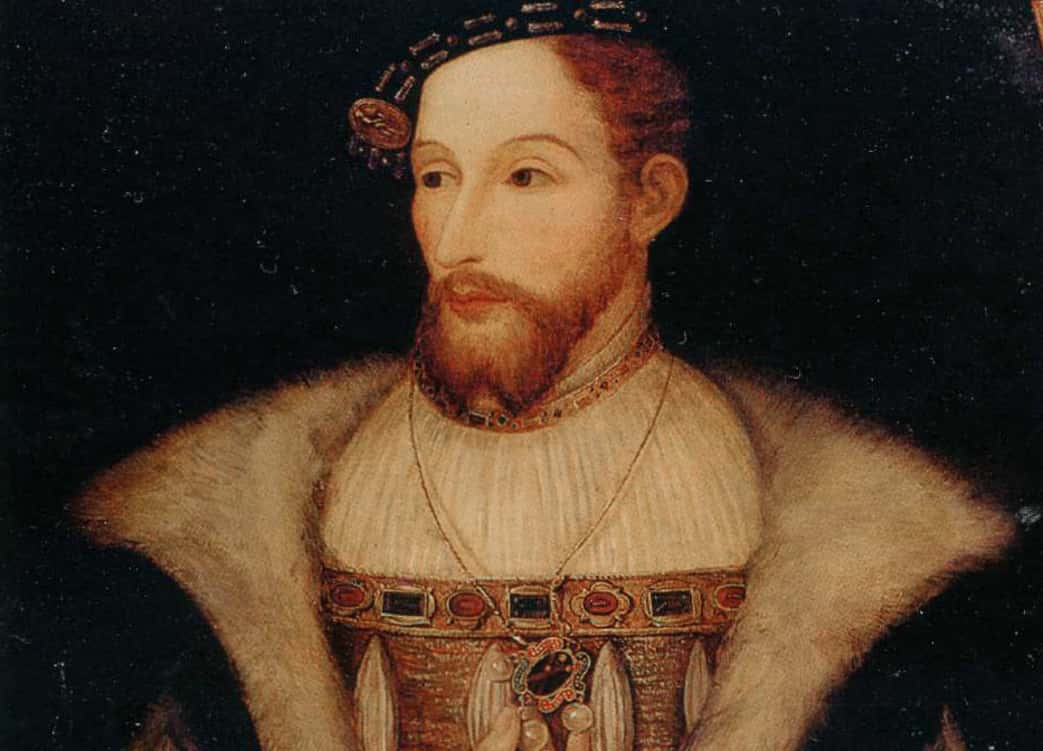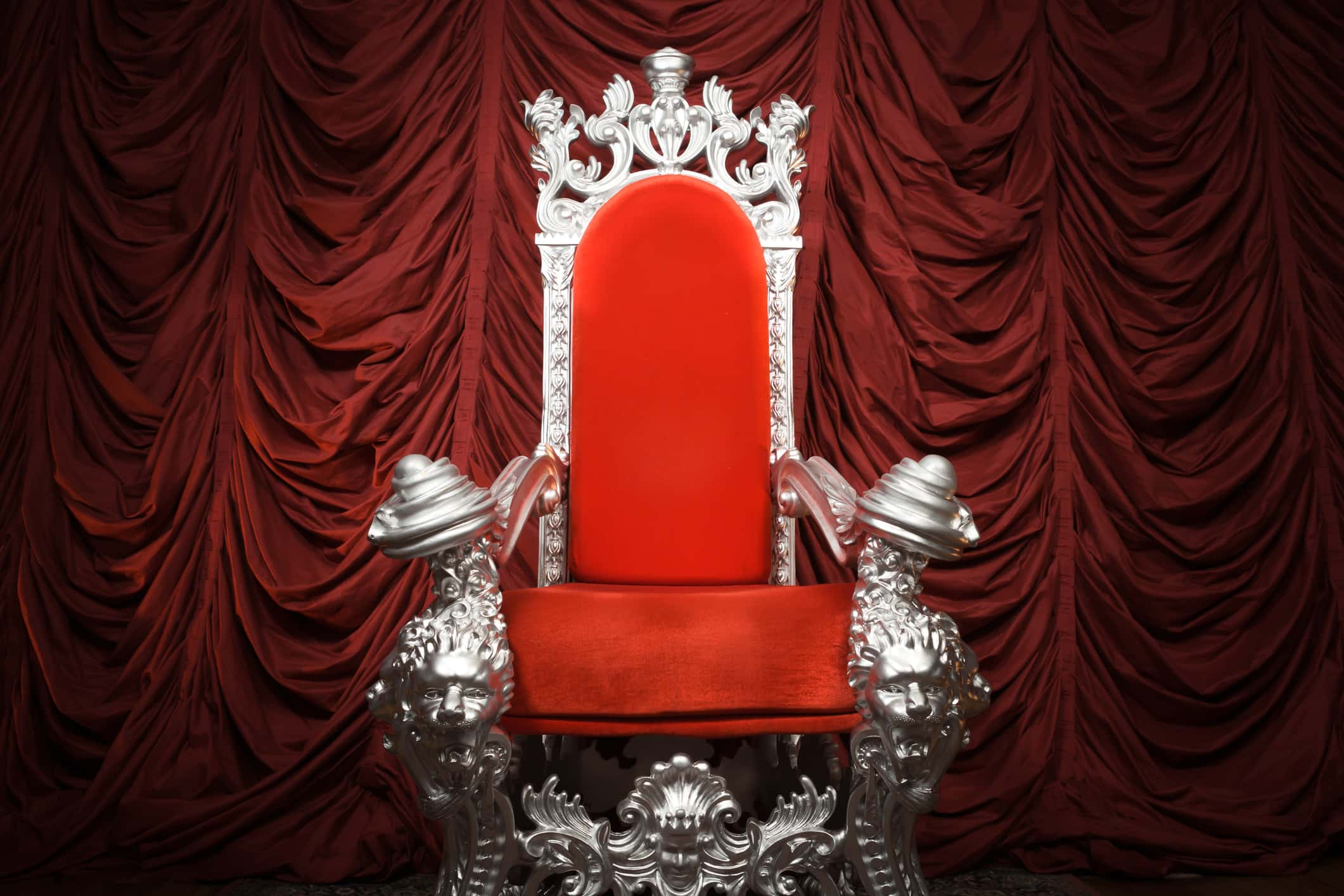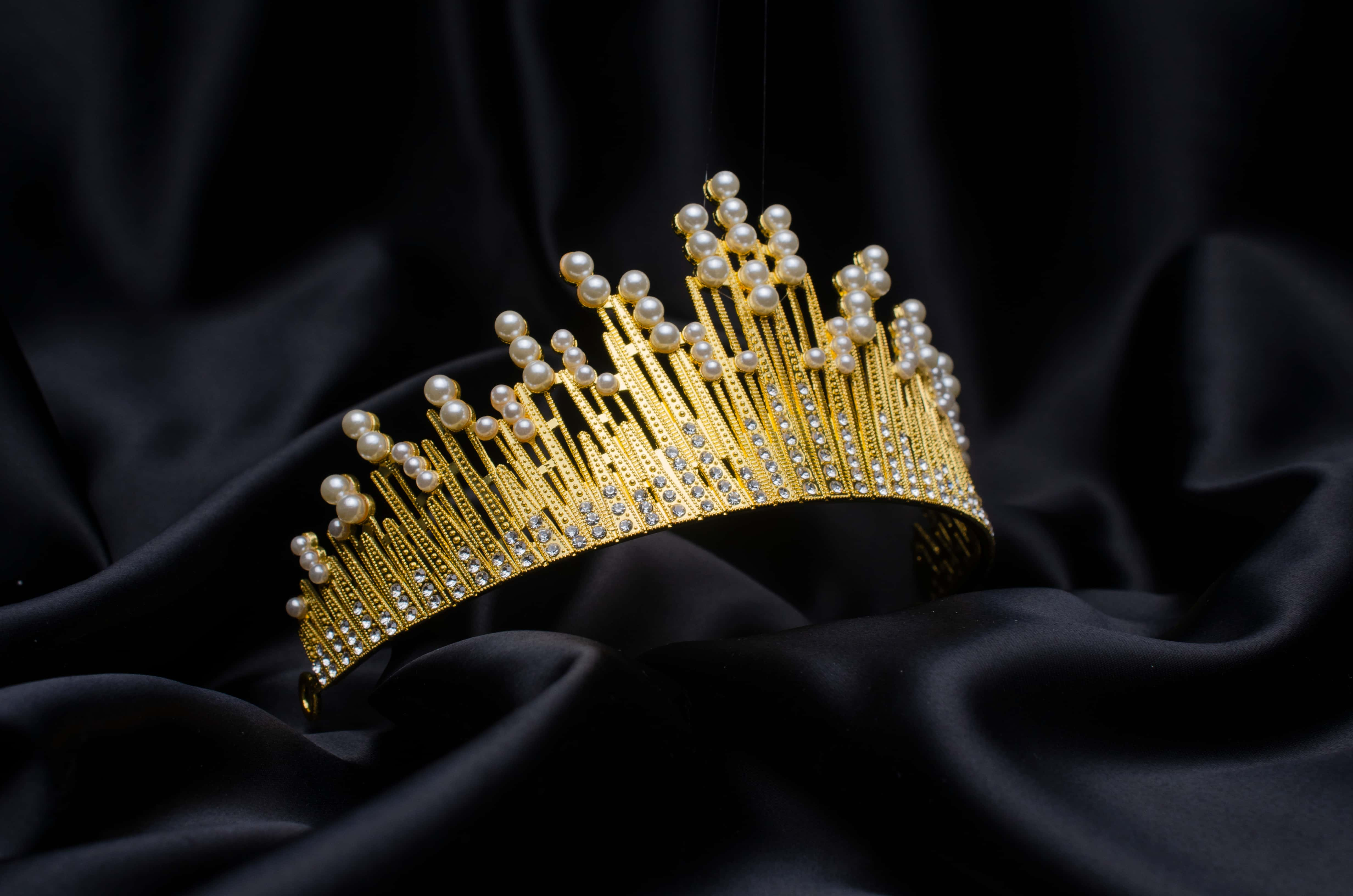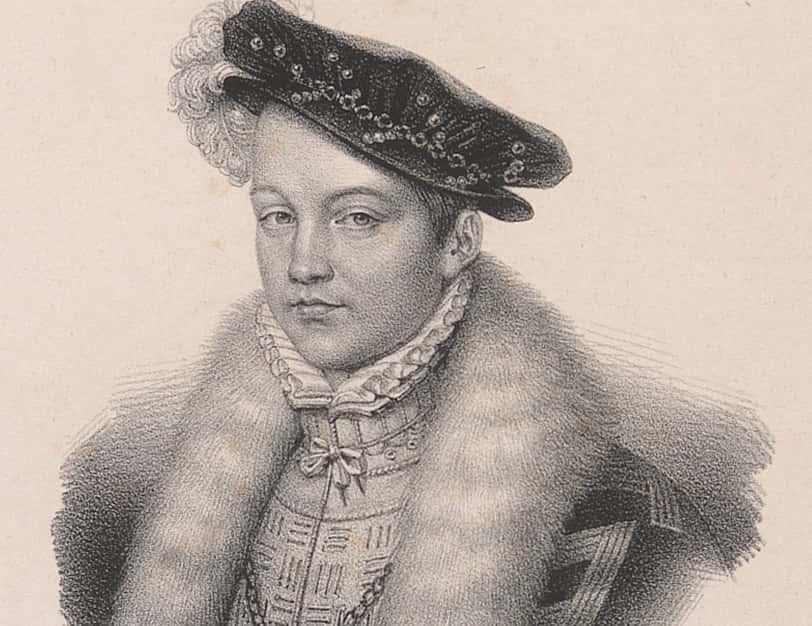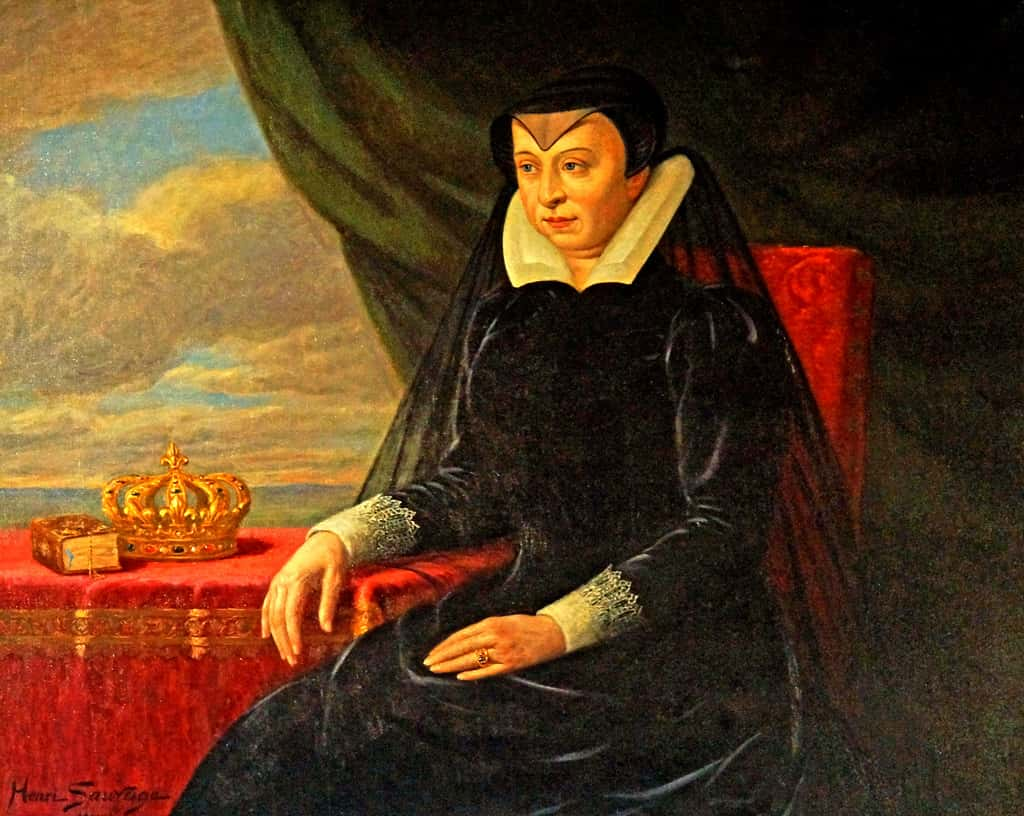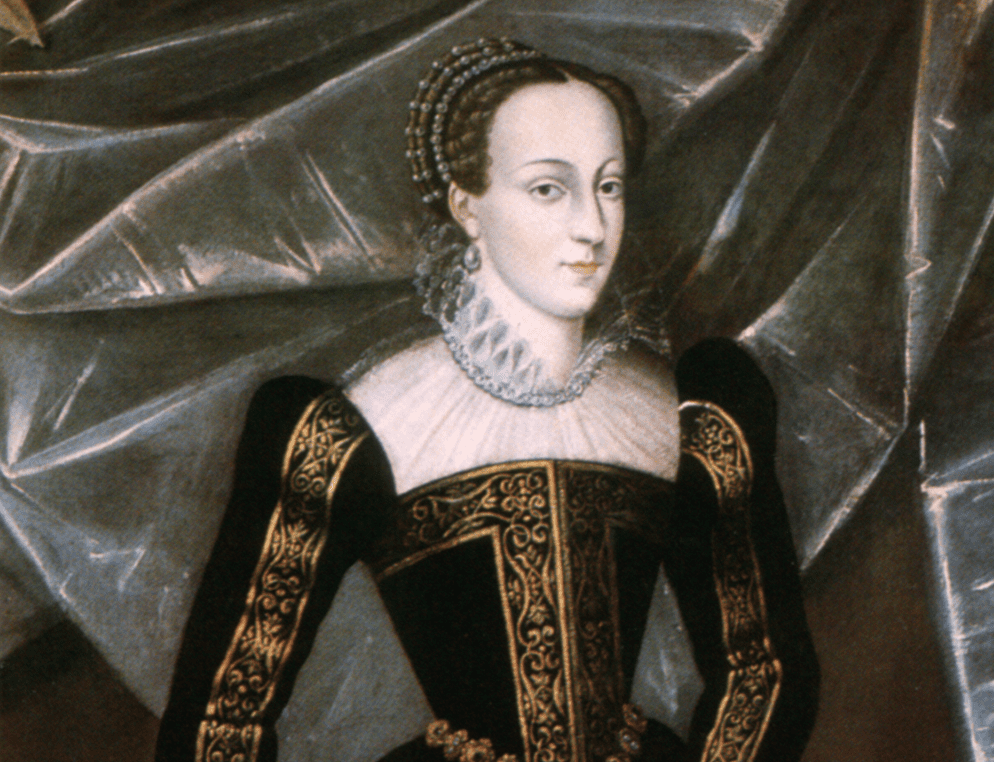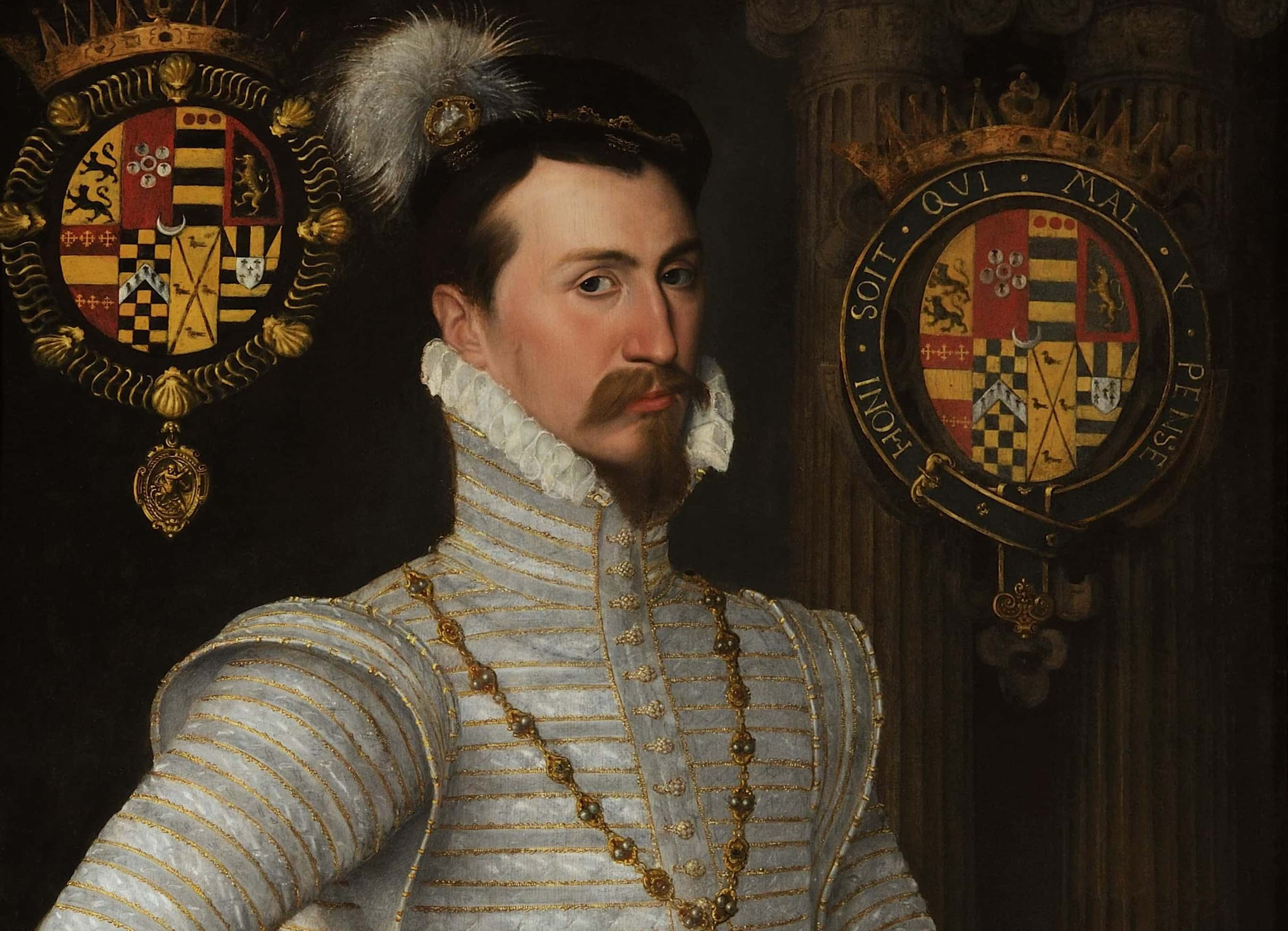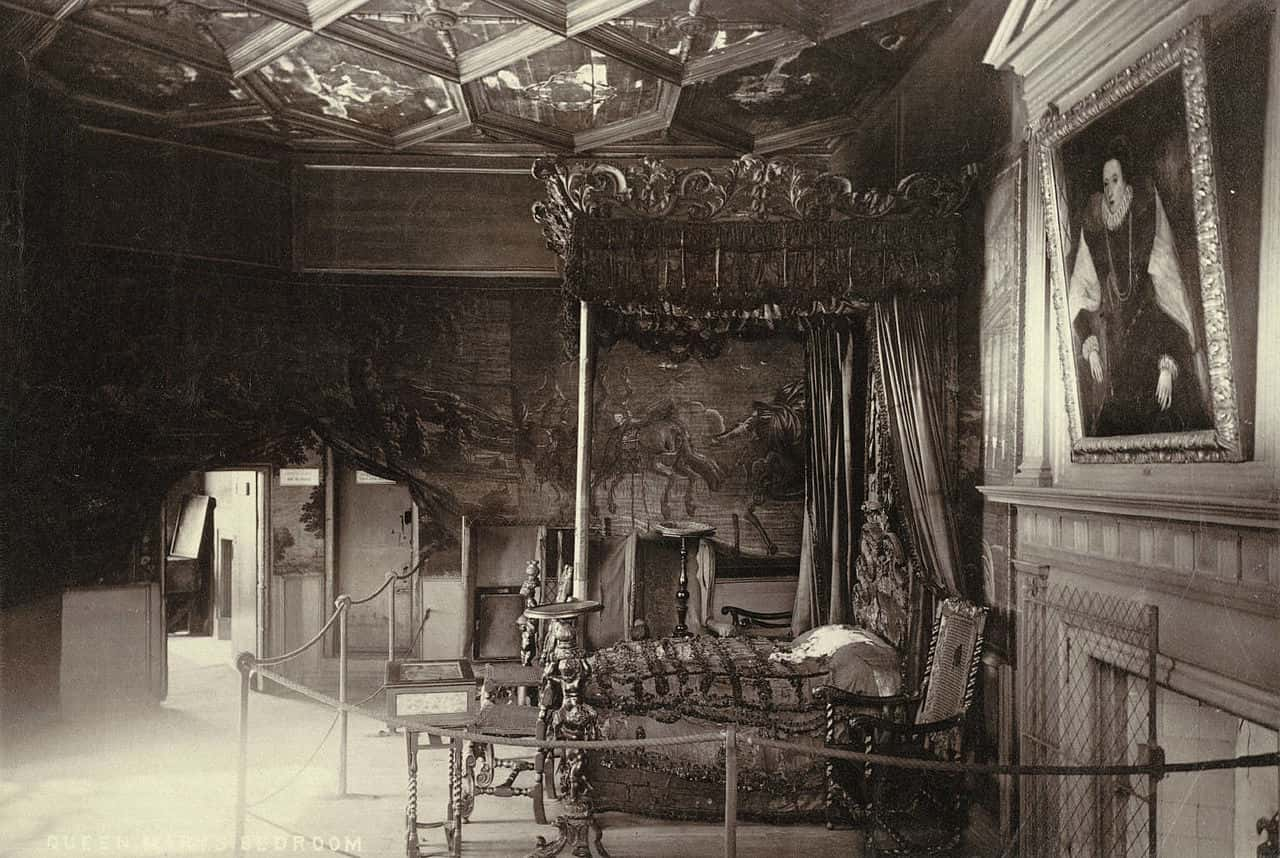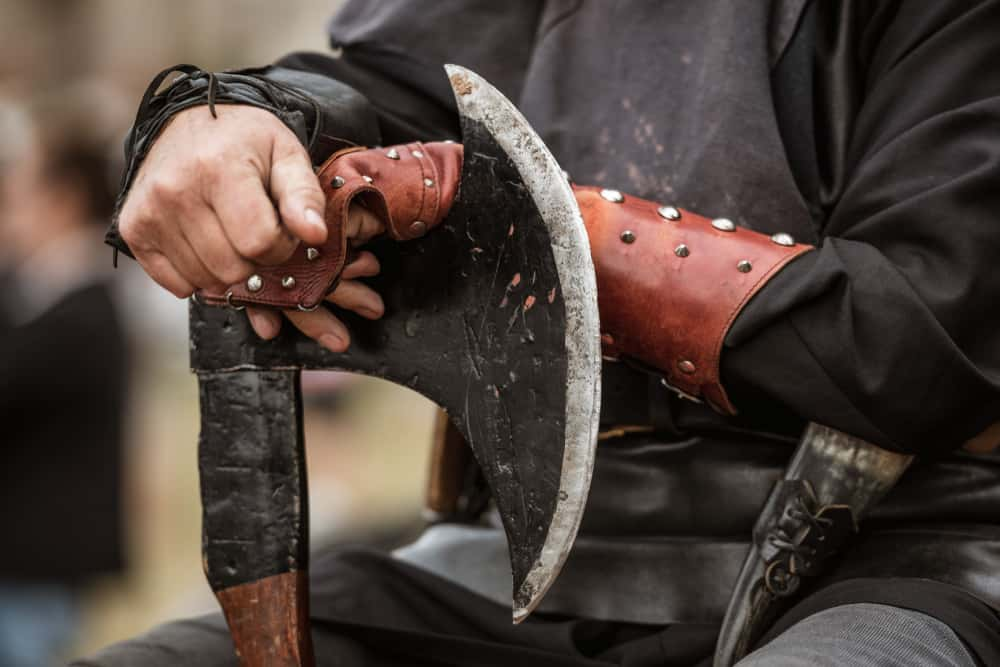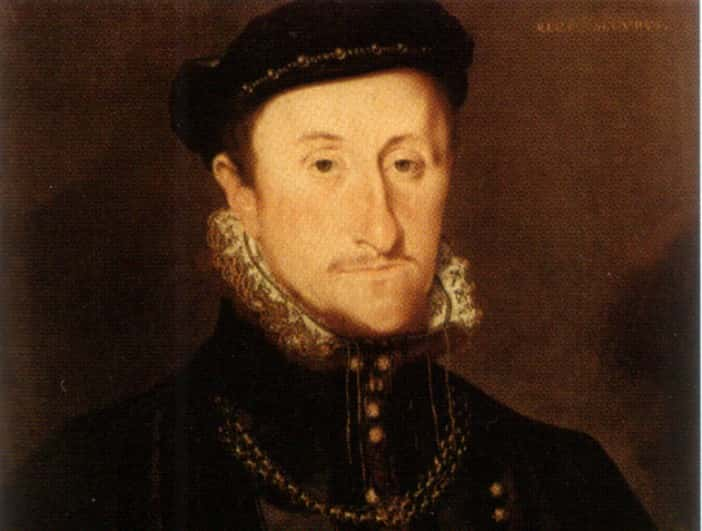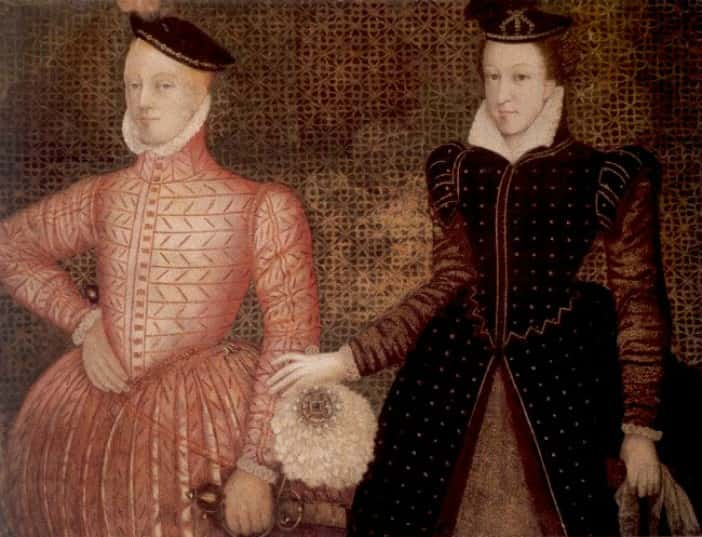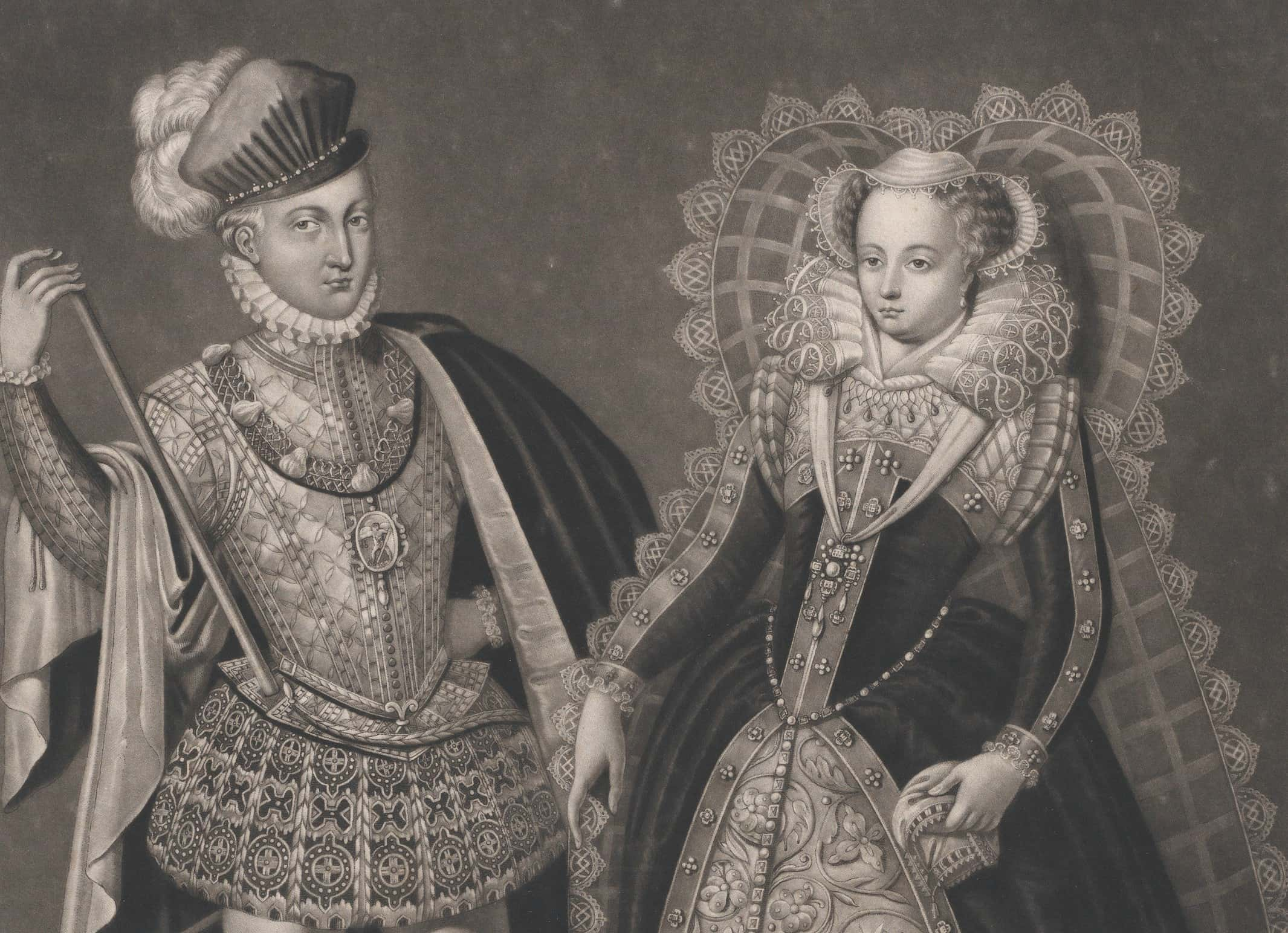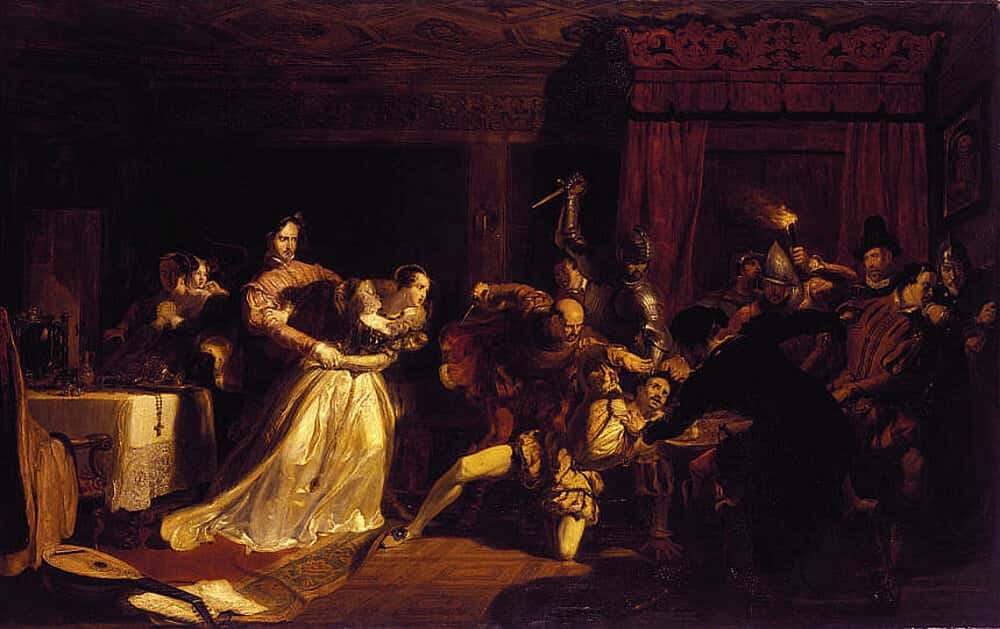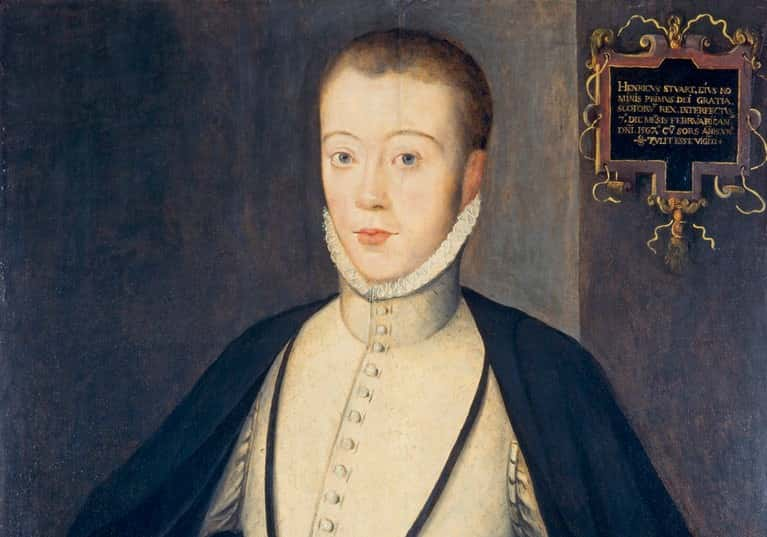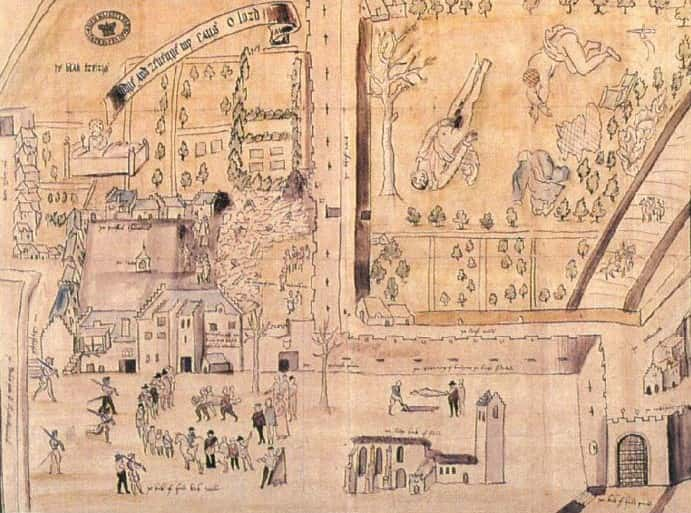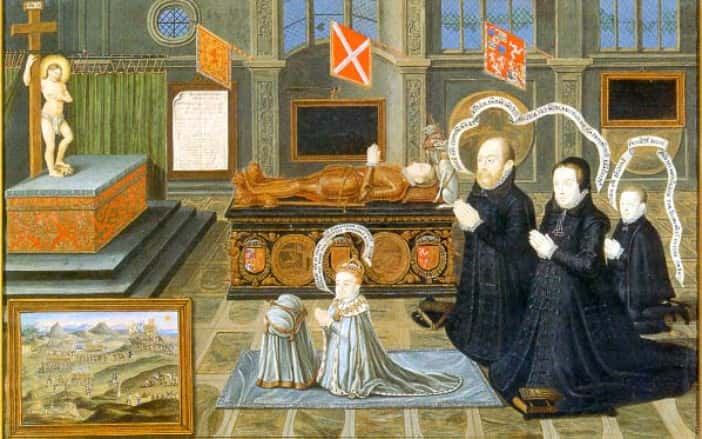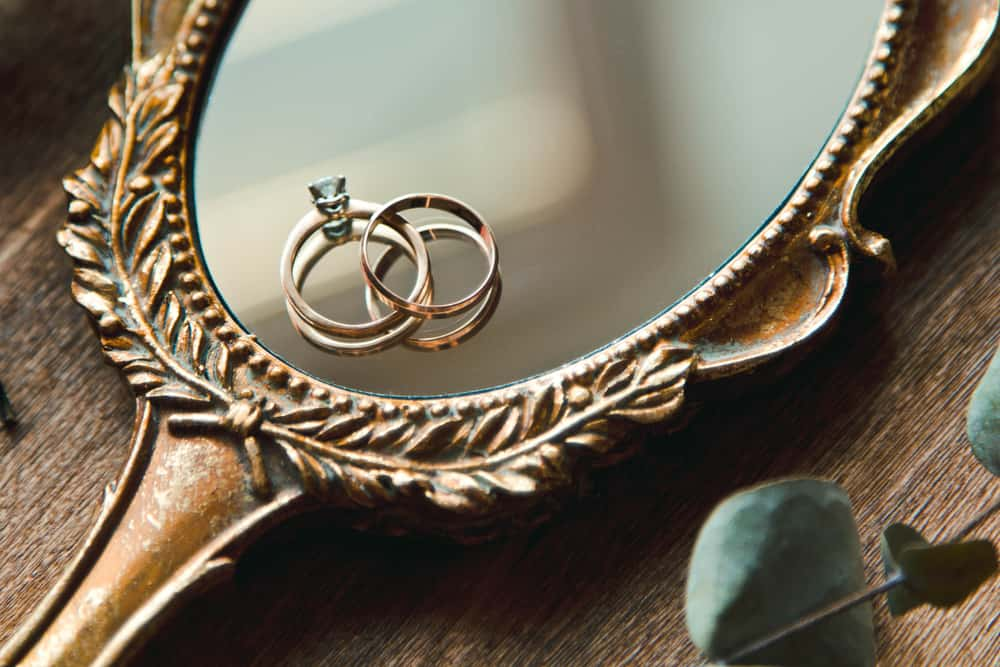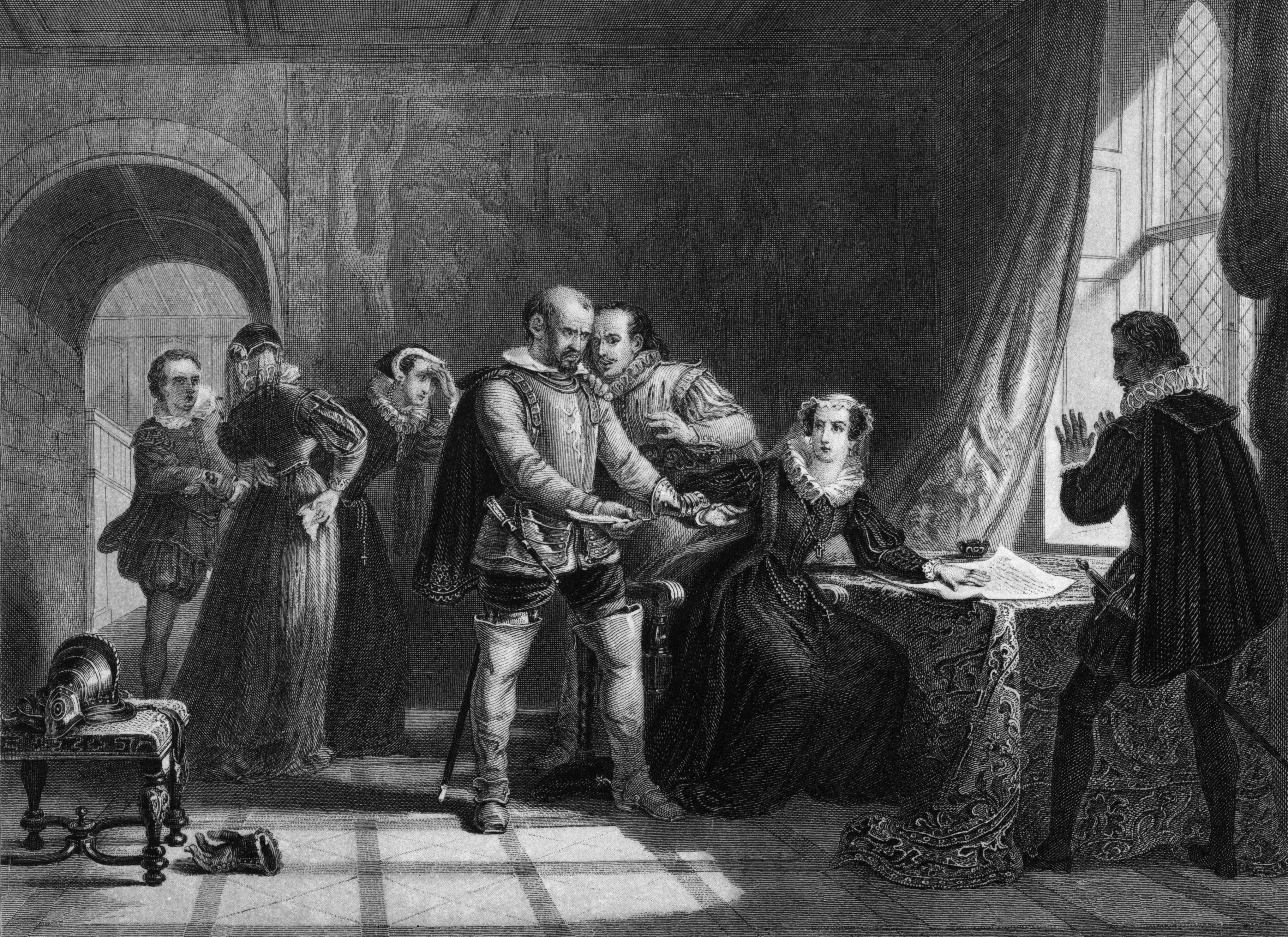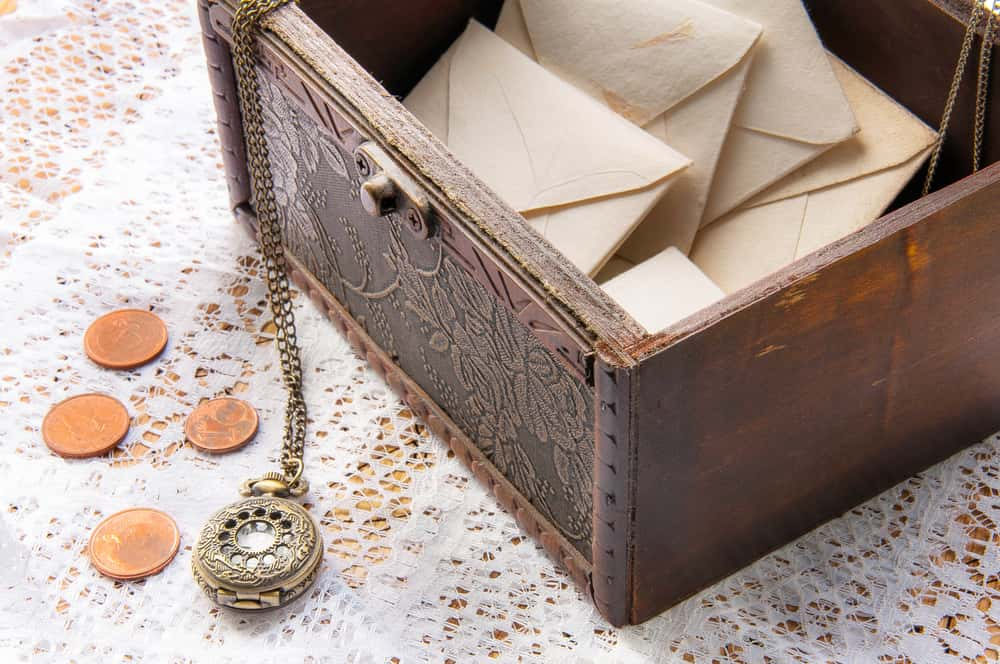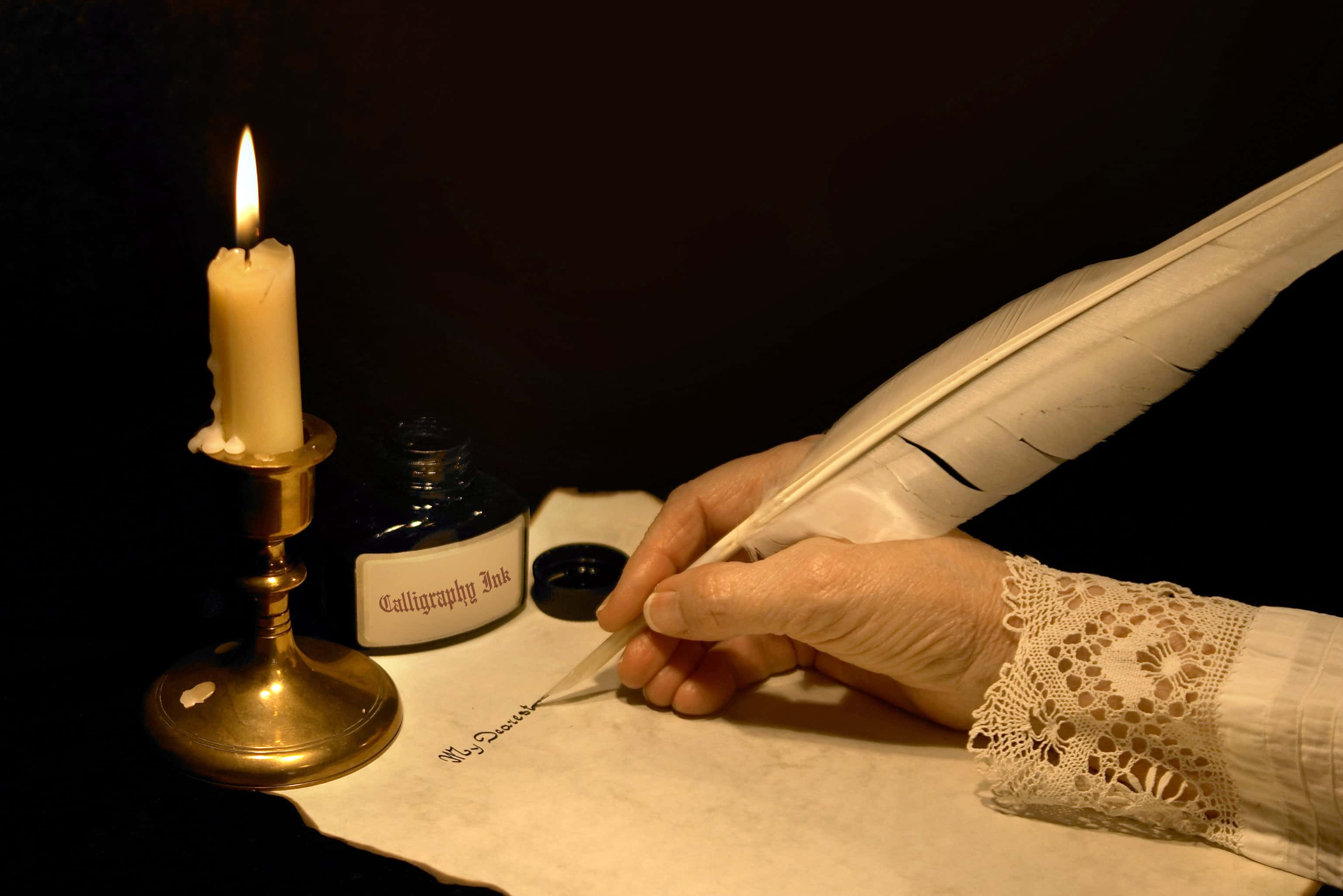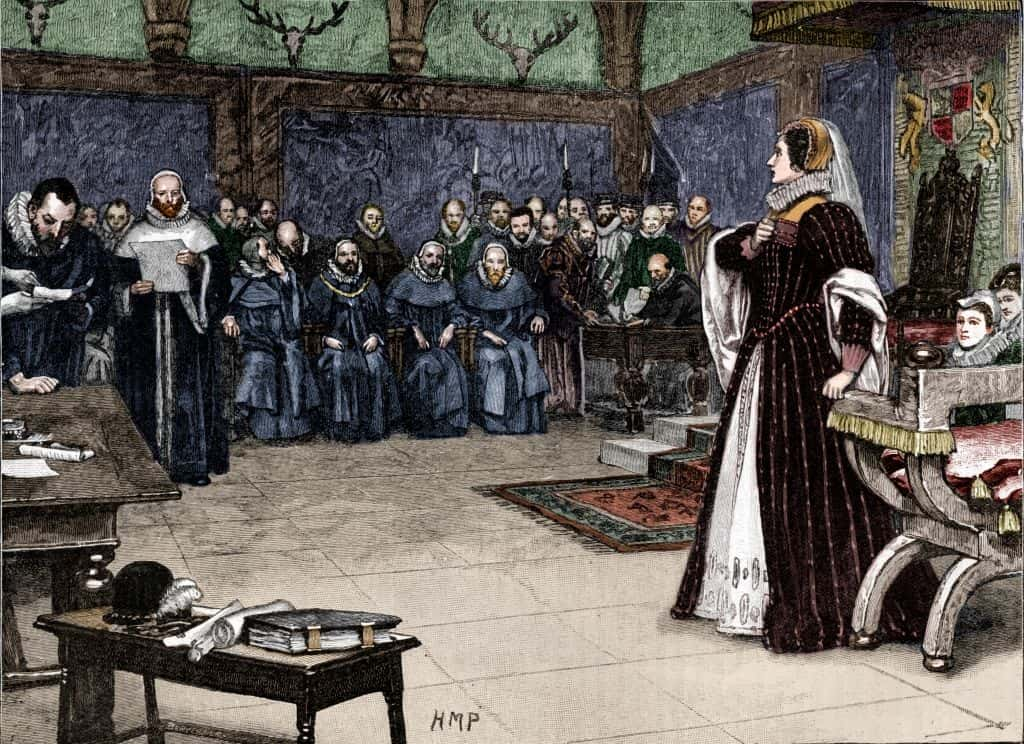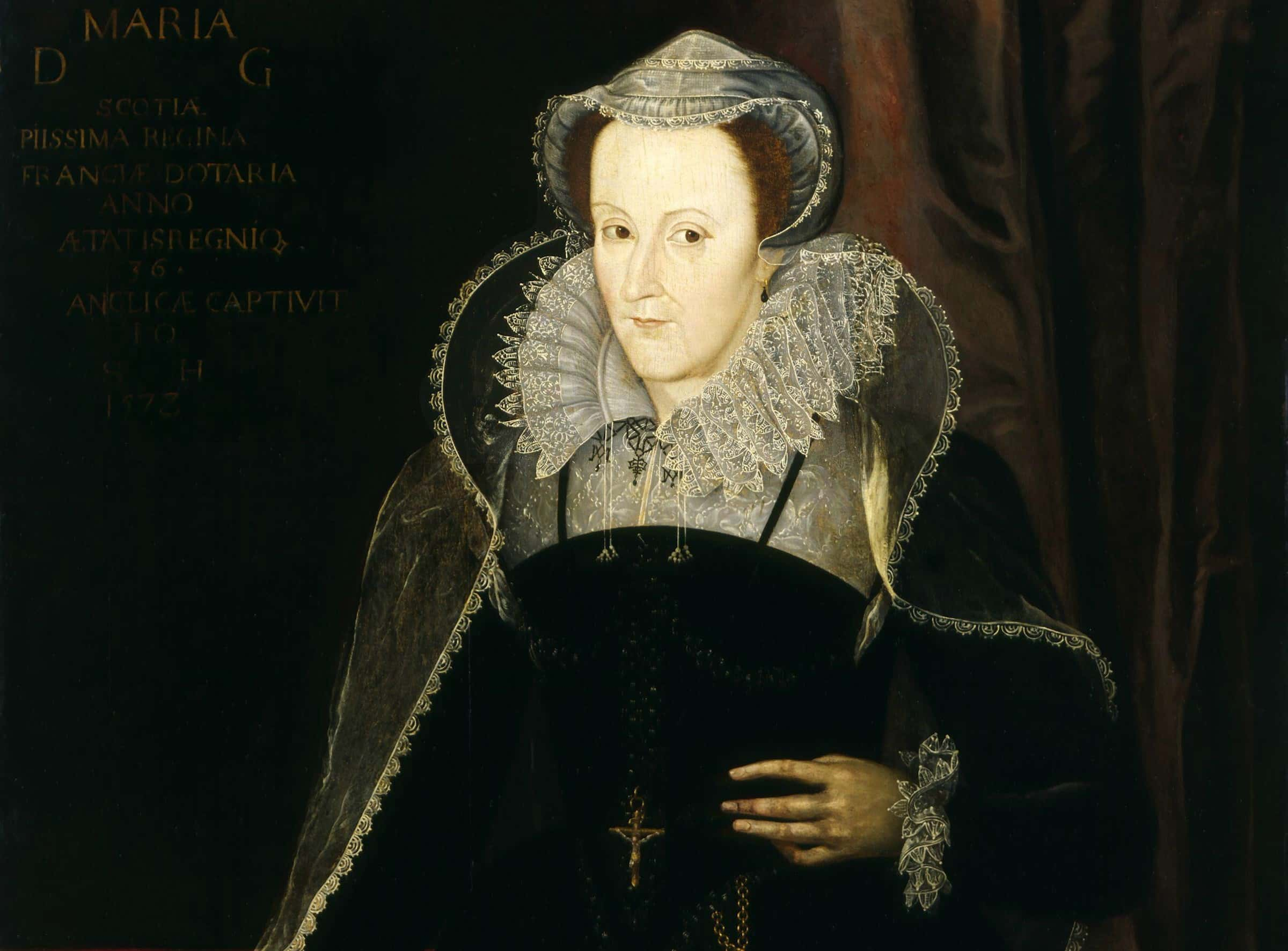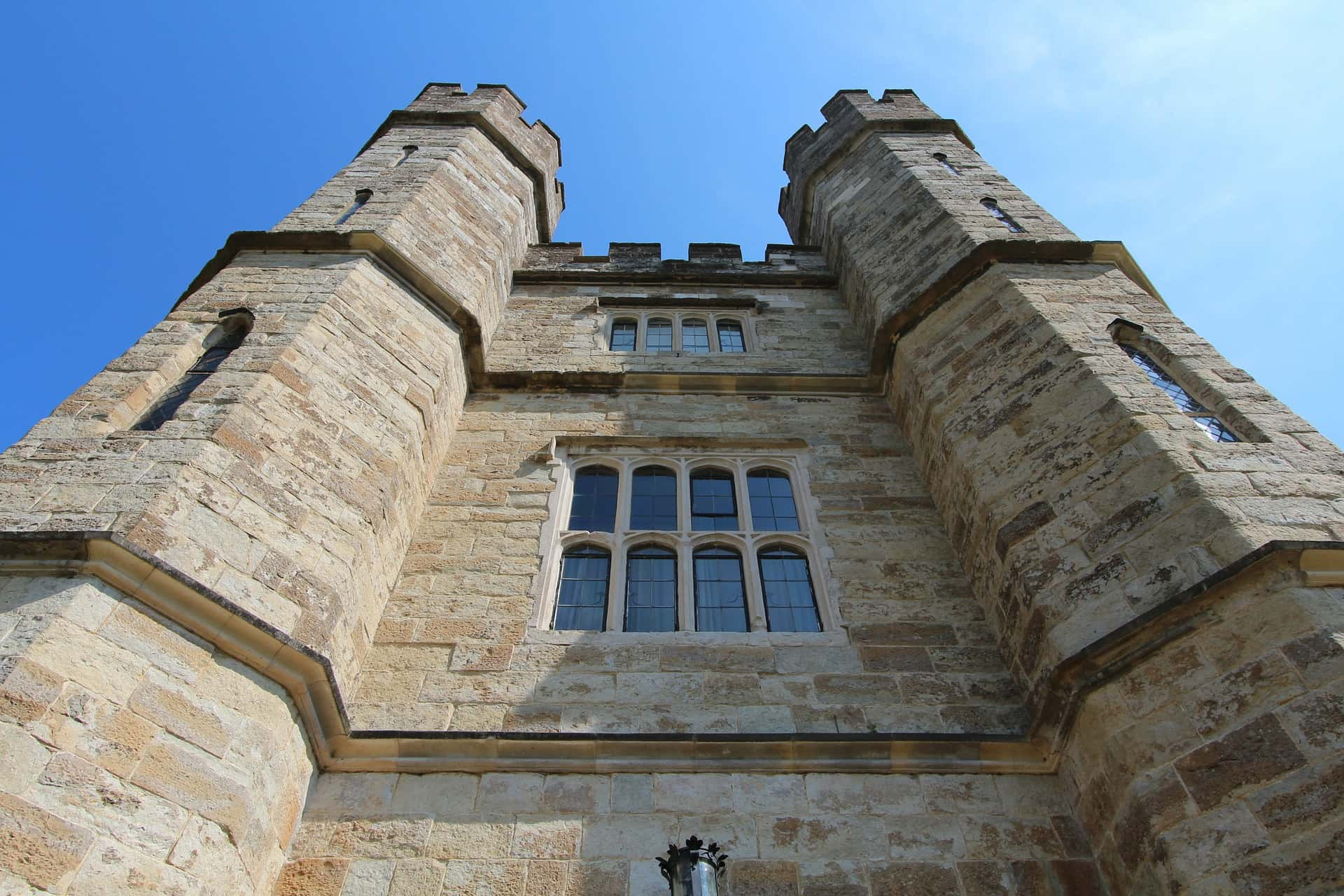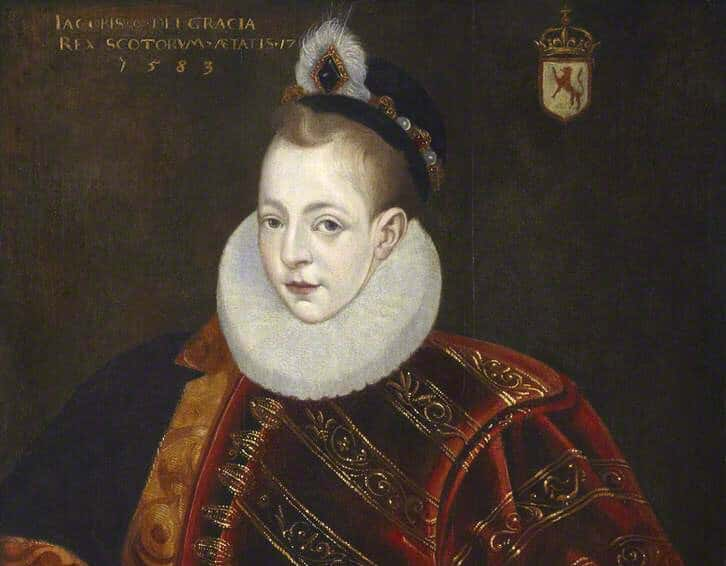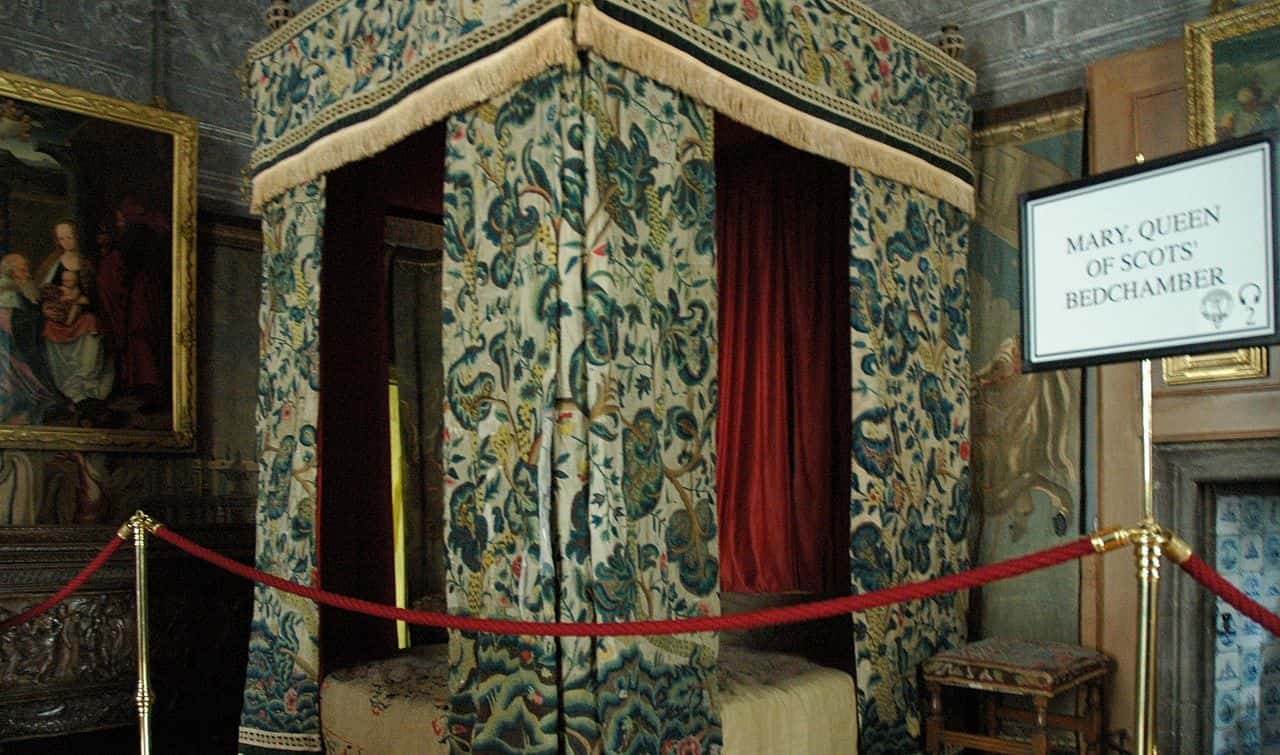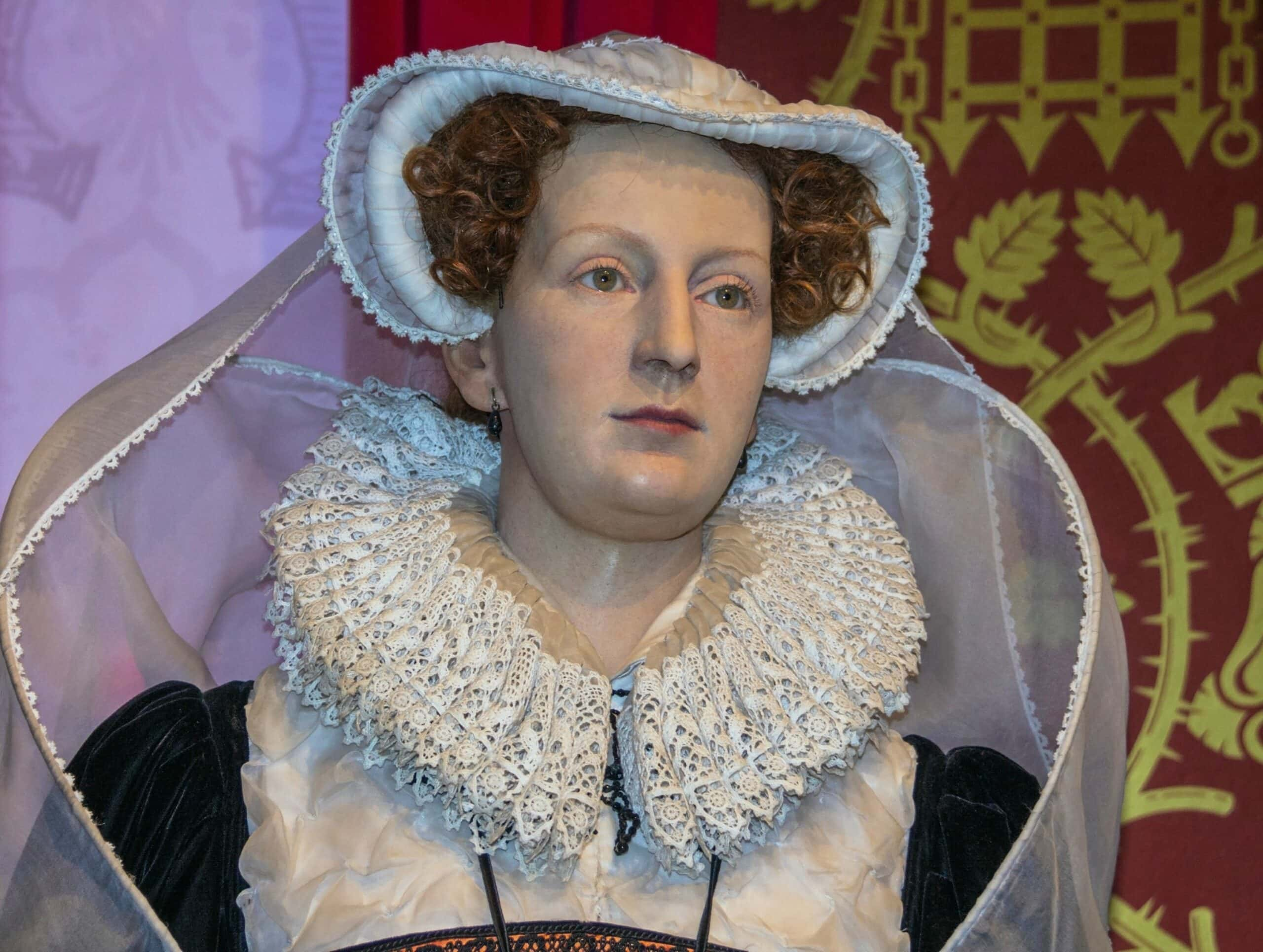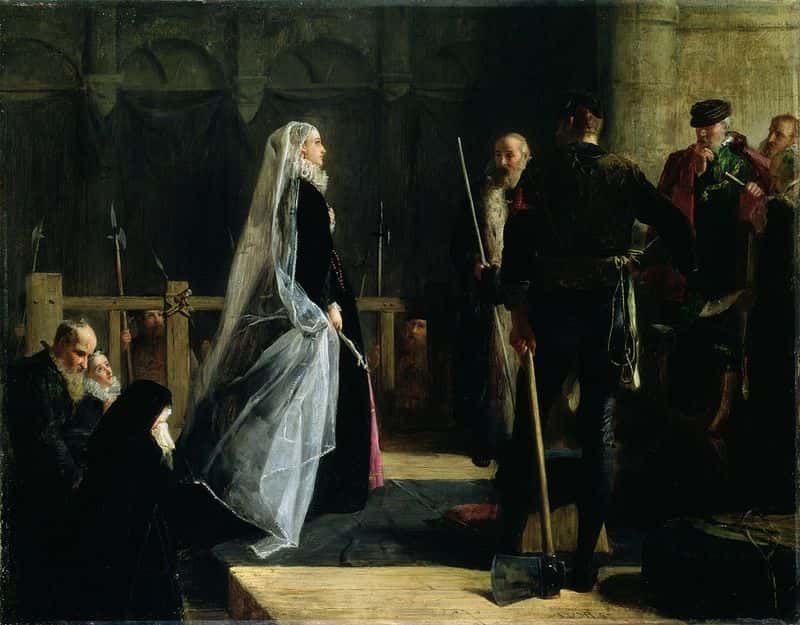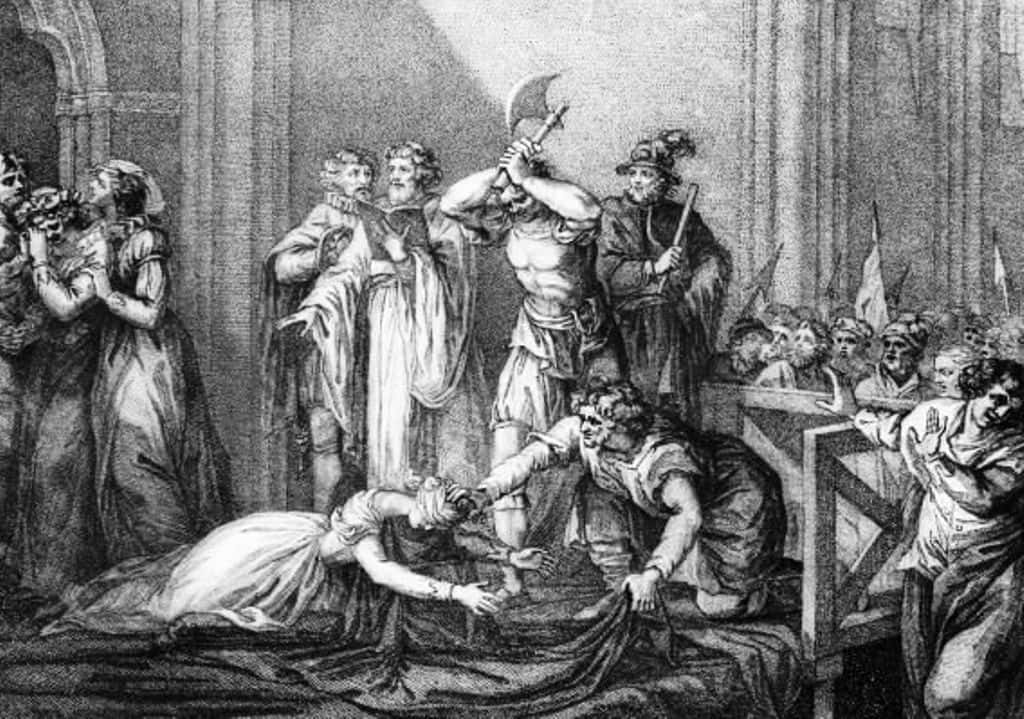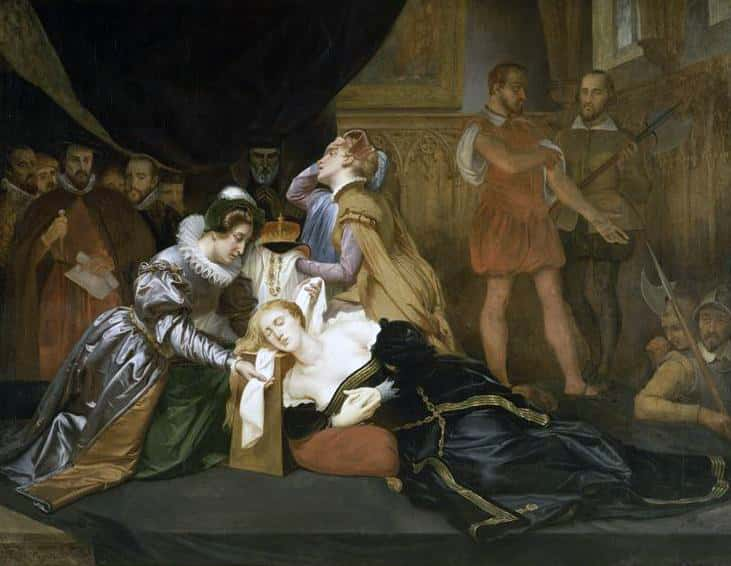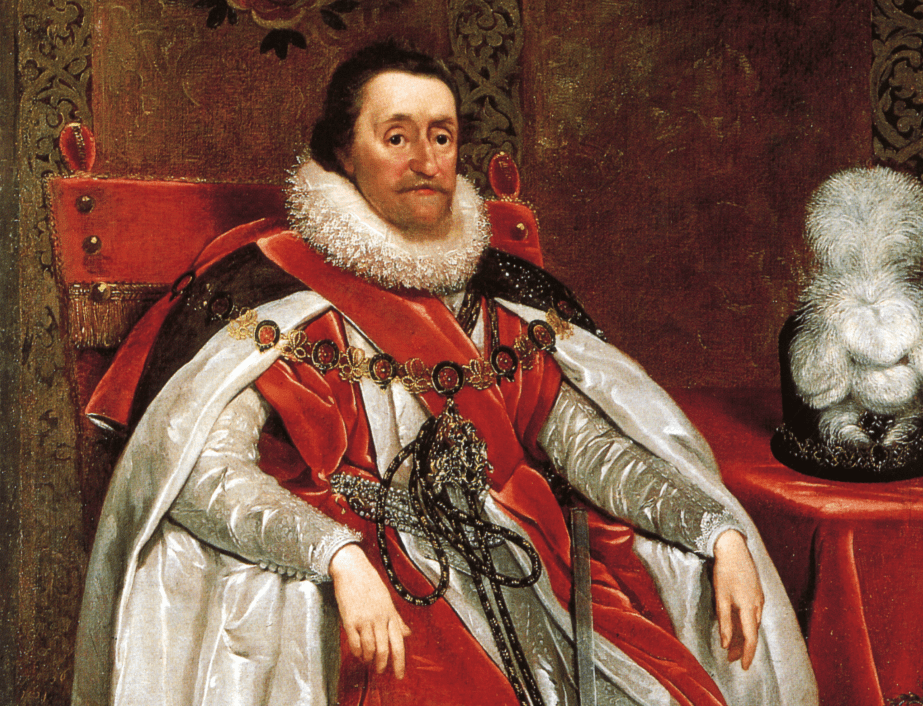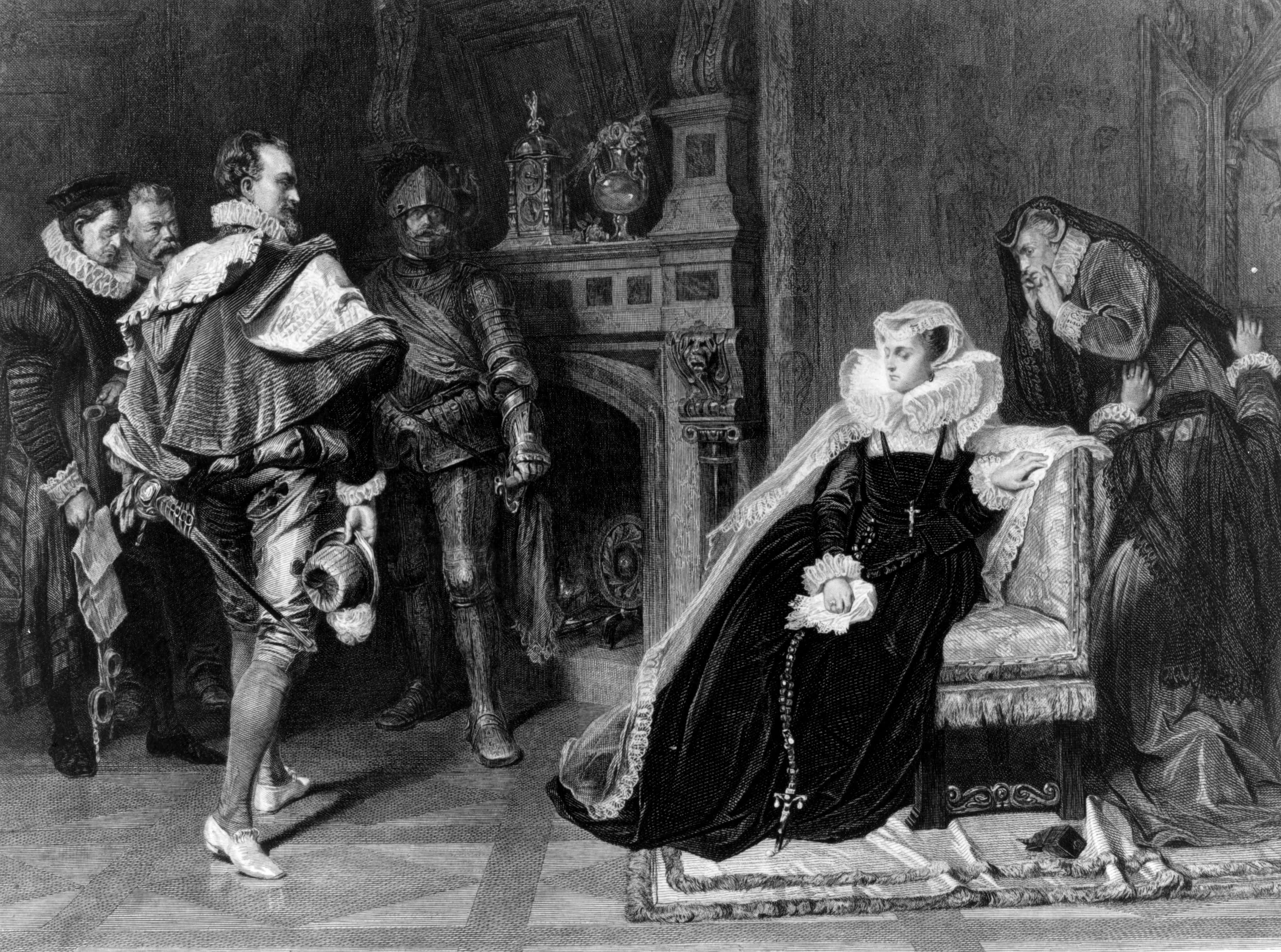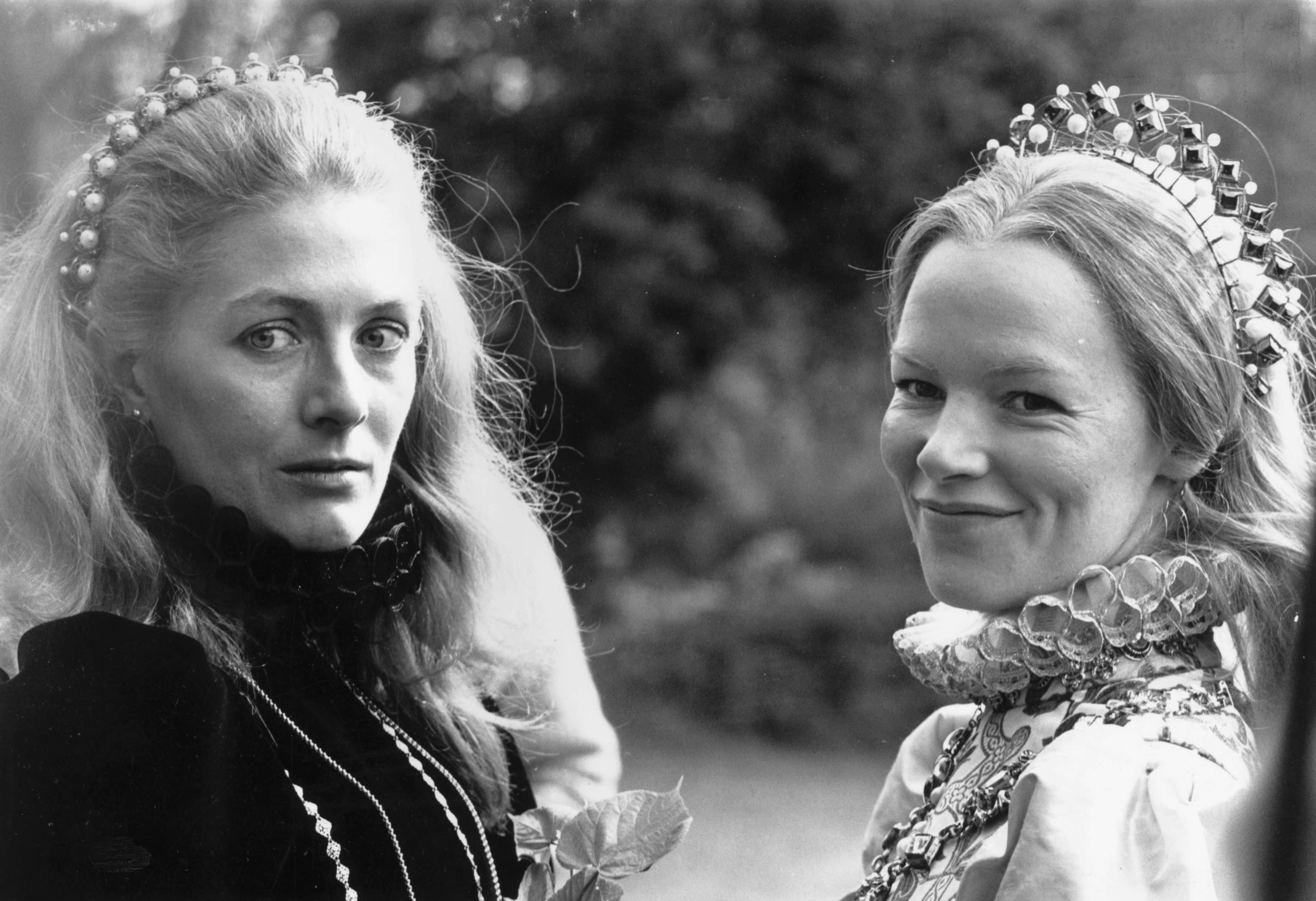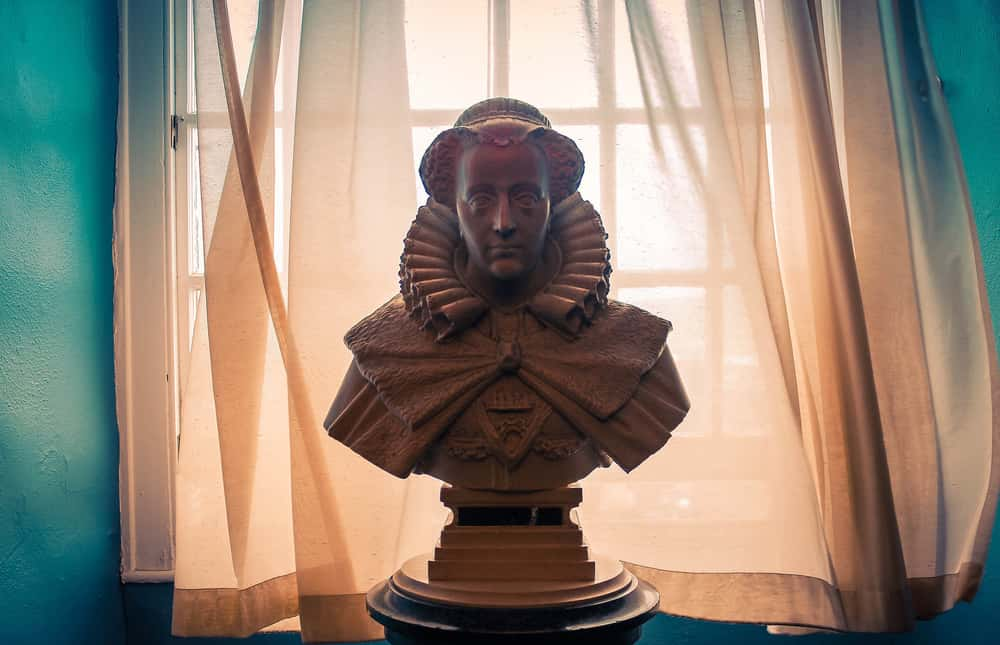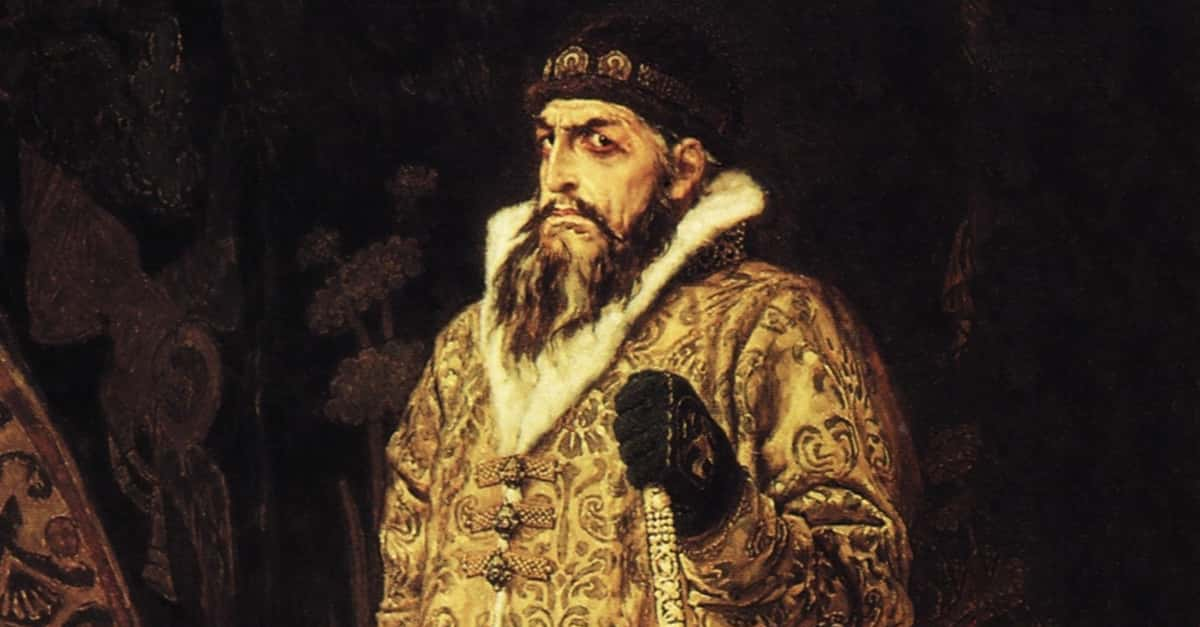There have been some scandalous monarchs in history, rulers whose volatile lives might as well be written in blood inside the history books. Yet none of them come close to Mary, Queen of Scots. From her crowning as a mere newborn to her infamous, violent end, it’s a shame Mary’s tragic story is so little known—there was truly nothing else like it.
Mary, Queen of Scots Facts
1. Her Birth Was Dangerous
On December 8, 1542, little Mary came into the world as the daughter of James V of Scotland and his spitfire wife, Mary of Guise. Yet from the very beginning, life was harsh to the girl. Born prematurely, she was fragile and had to fight tooth and nail for her right to stay in this world. In the future, this stubborn will to live was often the only thing that saved her.
2. She Was Baptized Into Tragedy
I’d love to say that Mary grew up in a warm, loving environment, but that’s not what happened at all. Just six days after her birth, immense tragedy struck. Her father King James collapsed, either from nervous exhaustion or contaminated drinking water, and soon perished. The newborn girl was now fatherless and very, very vulnerable.
3. She Was an Infant Queen
For the six short days she shared on Earth with her father, Mary was his only surviving legitimate child and the presumptive heir to his throne. Once he passed, that presumption became grim reality. Though envoys noted she was “weak and frail,” this babe was now Queen of all Scotland, and the entire country rested on her tiny shoulders. From the very first, it was one wild ride.
4. She Got an Indecent Proposal
Though Mary was still just an infant and had regents doing most of her decision-making for the first decades of her life, this didn’t mean she was out of the action—far from it. Almost immediately after her crowning, the infamous King Henry VIII of England started trying to get Mary betrothed to his son Edward, and he stopped at nothing to accomplish it.
5. She Had a “Rough Wooing”
When Scotland eventually rejected Henry’s proposal, the King’s response was infamously disturbing. He began his so-called “Rough Wooing” of the little girl, attacking Scotland and trying to strong-arm them into agreeing to the union through brute force. Meanwhile, Mary just burbled and gurgled along…BECAUSE SHE WAS STILL A BABY.
6. She Became a Pawn
In 1547, the first part of Mary’s destiny locked into place. Scotland, terrified of King Henry VIII and losing badly, turned to France for help. The French king said, “Sure, as long as she marries my son,” and the country readily agreed. From that point on, Mary was officially betrothed to the three-year-old Dauphin, Francis. I guess anyone is better than a relative of King Henry VIII?
 Reign (2013–2017), CBS Television Studios
Reign (2013–2017), CBS Television Studios
7. She Had a French Mystique
Now that the five-year-old Mary was no longer single and ready to mingle, her family sent her to France—and out of Henry VIII’s rampage—to live with her toddler fiancé. These were the years that shaped her life. She stayed at the French court for over a decade, racking up a series of elegant accomplishments from falconry to needlework. But it wasn’t always picture perfect…
8. She Made a Terrifying Rival
While Mary was in France, there are multiple reports of how much courtiers liked the sweet little girl. Everyone, that is, except one: Mary’s future mother-in-law, the fearsome Catherine de Medici. She was apparently cold with the Scottish infanta throughout their time together, but there's no doubt that Mary picked up a few tricks from Catherine’s cunning playbook.
9. Her Beauty Was Legendary
The French court was astonished at what the toddler who came to them grew into: A great beauty. She had a small face, a long, graceful neck, hazel eyes, and a head of thick, auburn hair. Her most striking feature? In an era of bad diets and rampant diseases, Mary grew to an astonishing 5 feet, 11 inches tall. As for her betrothed, though…
 Mary Queen of Scots (2018), Focus Features
Mary Queen of Scots (2018), Focus Features

History's most fascinating stories and darkest secrets, delivered to your inbox daily.
10. She Got a Raw Marriage Deal
Where Mary was all long lines and elegant manners, Prince Francis had a noticeable stutter, was constantly ill, and was somewhat shorter than average for the time. But they had a secret weapon. Odd couple or not, they got along “as if they had known each other for a long time." The pair were close confidantes—which is good, because their wedding came at them fast.
 Reign (2013–2017), CBS Television Studios
Reign (2013–2017), CBS Television Studios
11. She Was a Teen Bride
In 1558, Mary was a flush 16 years old, while Prince Francis 14 years old and probably still dealing with his first wave of acne. Still, this was apparently mature enough. The court married them in a royal ceremony full of pomp and circumstance on April 24 of that year. The plan was to get them pumping out heirs immediately…a plan that did not work out.
12. She Won Her Crown Through Catastrophe
Mary and Francis’ union didn’t even start out well. The very next year, Francis’s father Henry made the grave mistake of getting injured in a summer-time joust, and he eventually passed from his wounds. Through this misfortune, the teenage lovebirds were now the King and Queen of France—except more heartache was on the horizon.
 Reign (2013–2017), CBS Television Studios
Reign (2013–2017), CBS Television Studios
13. She Was Orphaned
In June 1560, it was Mary’s turn to lose a parent. Her mother Mary of Guise passed that year, rendering the girl officially an orphan and throwing Scotland into even more political turmoil. At just 17 years old, the still-teenaged Mary barely knew how to process her grief and mourning. In fact, she wouldn’t even have the time to.
 Reign (2013–2017), CBS Television Studios
Reign (2013–2017), CBS Television Studios
14. She Had a Bedroom Secret
Throughout all these years, Francis and Mary never had a child, and there are no reports that Mary was even pregnant during this time. Although some historians say this might have been because of Francis’s many ailments, others point to a more unsettling conclusion: That Francis was so young, his testicles hadn’t even dropped yet. Either way, it still spelled doom.
15. She Lost Her Husband in a Brutal Way
In early winter 1560, Francis was ailing again, this time with an ear infection. Mary might have thought it was business as usual for her sickly husband—but it soon took a dark turn. The infection led to a devastating and fatal brain abscess, and on December 4, the King was dead. Once more, Mary’s whole world fell apart in the blink of an eye.
 Reign (2013–2017), CBS Television Studios
Reign (2013–2017), CBS Television Studios
16. France Exiled Her
Since Mary had no claim to the French throne and no heirs to speak of, France gave her one viciously cold goodbye. Even as she grieved the loss of her mother and her husband, Catherine de Medici carted Mary off back to Scotland in 1561. By this time, Mary’s native land was now a foreign country to her…and she arrived just in time for a dangerous game of thrones.
17. She Had a Bitter Enemy
Today, Mary is infamous for her rivalry with her cousin, Queen Elizabeth I of England—and for very good reason. Mary’s royal lineage and Catholic faith made her very popular with people who wanted to oust Elizabeth from power, and Mary herself was pretty interested in adding “Queen of England” to her titles. This ambition would be her downfall.
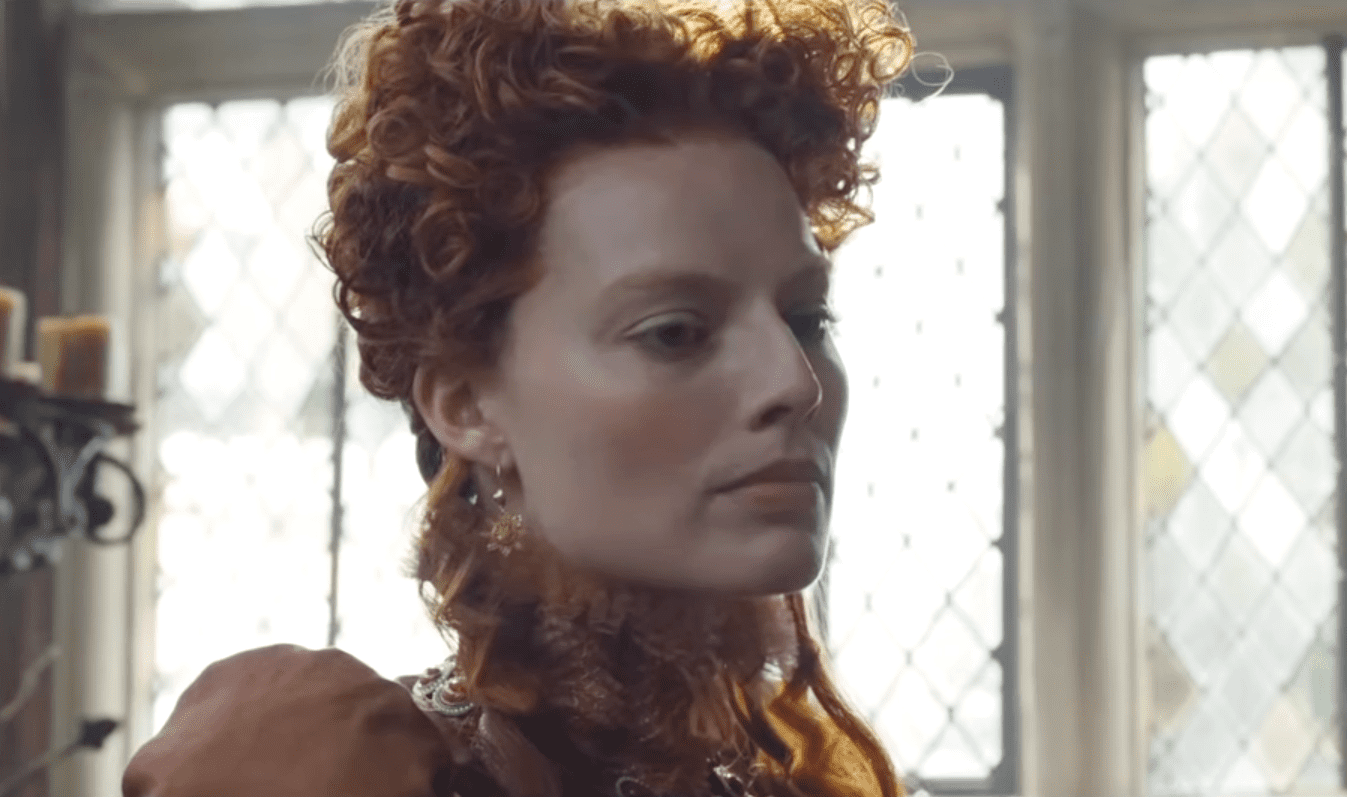 Mary Queen of Scots (2018), Focus Features
Mary Queen of Scots (2018), Focus Features
18. She Had Strange Taste in Men
With her grief somewhat soothed and the English throne on her mind, Mary started casting about for a new royal husband. It was a total disaster. Her advisors tried to foist Archduke Charles of Austria on her, and she booted him right back to Vienna. Not that her own choices were much better. For some ungodly reason, she tried to butter up the mentally unstable Don Carlos of Spain, only for Spain to deny her.
 Reign (2013–2017), CBS Television Studios
Reign (2013–2017), CBS Television Studios
19. She Was Involved in a Matchmaking Plot
This version of royal Tinder was embarrassing enough for Mary, but it was about to get a whole lot worse. In the early 1560s, Queen Elizabeth I decided she’d do her cousin a solid and suggested her own court favorite, the eternally handsome and suave Lord Robert Dudley, as a potential suitor. But, well, it wasn’t really out of the goodness of her heart.
20. She Was in a Threesome
In truth, Elizabeth wanted to neutralize Mary. She thought if Dudley could woo the Queen of Scots, Mary would be in her pocket. There were just two enormous problems. Dudley was very likely Elizabeth’s own lover, and Elizabeth actually wanted them all to live at the English court as some bizarre ménage-a-trois. The other issue was…Dudley himself.
 Elizabeth: The Golden Age, Universal Pictures
Elizabeth: The Golden Age, Universal Pictures
21. She Received a Cruel Rejection
For a little while, Dudley tried to be Elizabeth’s Man in Havana and do her bidding, but that didn’t last long. He just wasn’t that into Mary. Actually, he was really not into Mary. Even though the Queen of Scots was all for the idea, the betrothal never went forward because the groom-to-be absolutely refused. Ouch, that one had to hurt.
 Mary Queen of Scots (2018), Focus Features
Mary Queen of Scots (2018), Focus Features
22. She Had a Terrifying Stalker
It wasn’t all spurned lovers and lost suitors over in Mary’s court...there were also huge, violent creeps. The French poet Pierre de Boscosel de Chastelard was capital “O” Obssesed with Mary—and it came to a horrifying climax. One day, guards even found him hiding under Mary’s bed, just waiting for her to be alone. Oh, but it didn’t end there.
23. She Gave a Vengeful Punishment
After Pierre bedroom-stalked her, Mary sensibly banished him from Scotland, but he un-sensibly didn’t listen. In fact, he just upped his game. Two days later, he shoved his way into her bedchamber again, this time just as she was about to undress. Well, that was it for the would-be Romeo. A furious Mary had her men detain him and then beheaded him for treason.
24. Her Brother Was a Traitor
Around this time, Mary got into another major family feud. Religion was a big deal in the 16th century, and while Mary was Catholic, revolutionary forces had been turning Scotland ever more Protestant in her absence. The kicker? Her own half-brother, the Earl of Moray, was their leader. If you’re sensing some Big Lannister Energy coming up, you’d be right.
 Reign (2013–2017), CBS Television Studios
Reign (2013–2017), CBS Television Studios
25. She Made a Surprising Power Play
See, Mary was darn smart, and if there’s one thing she learned living alongside Catherine de Medici, it was to keep your friends close, and your enemy half-brothers closer. Astonishing everyone, Mary made Moray her chief advisor, and kept a bunch of his Protestant friends around to boot. After all, she’d need friends; she was about to come up against the most volatile period of her life.
26. She Fell in Love at Second Sight
For all that Mary was unlucky in love, her next husband was hiding in plain sight. In February 1561, when she was still in mourning for Francis, she met her half-cousin Henry Stuart, AKA Lord Darnley, in passing. Though the grieving queen must not have thought much of him at the time, they got a second chance at love four years later.
 Mary Queen of Scots (2018), Focus Features
Mary Queen of Scots (2018), Focus Features
27. She Had a Type
Upon their second meeting, Mary was immediately smitten with Darnley, and it’s not hard to see why. Nicknamed “the long lad,” Darnley was over six feet tall and an absolute giant by the day’s standards. Well, that suited the 5’11” Mary just fine, and it sure didn’t hurt that Darnley was famously good looking on top of it all. Yet she paid a devastatingly high price for love.
 Reign (2013–2017), CBS Television Studios
Reign (2013–2017), CBS Television Studios
28. Love Made Her Stupid
Unwilling to wait, Mary wed Darnley in a fit of passion at Holyrood Palace in July 1565, against all the advice of her councillors and without even getting a papal dispensation for marriage between Catholic cousins. It happened so fast and made so little sense, one courtier claimed she was “bewitched.” And given the way it turned out, black magic wasn't a bad explanation.
29. She Made a Fatal Error
There were signs from the very beginning that Darnley and Mary were a bad match, but she just didn’t listen to them. Queen Elizabeth, for one, was infuriated with the union. Both Darnley and Mary had claims to the English throne, and Elizabeth was terrified any children they produced would present an even bigger threat. But there were also troubles closer to home…
 Mary Queen of Scots (2018), Focus Features
Mary Queen of Scots (2018), Focus Features
30. She Caused a Rebellion
Marrying Darnley was a very, very bad idea. Besides ticking off Elizabeth, Mary’s rash decision also inflamed her brother Moray, who didn’t like that now both the King and Queen of Scotland were Catholics. In response, he went into open rebellion. You know when none of your friends like your new boyfriend? Yeah, it was like that. And well, your friends are usually right.
 Mary Queen of Scots (2018), Focus Features
Mary Queen of Scots (2018), Focus Features
31. She Strove to Be “Pure”
Mary went wild for the color white, and valued purity and paleness in almost all things, especially in herself. For one, she was famous for the whiteness of her neat, tidy hands. For another, she insisted on wearing white to her wedding to Francis II, even though at the time in France white was the official color of mourning. But whatever Mary wants, Mary gets.
 Reign (2013–2017), CBS Television Studios
Reign (2013–2017), CBS Television Studios
32. She Married for Lust
For a time, Mary’s flame for Darnley burned bright, and she called him the “lustiest and best proportioned long man that she had seen.” Hot and heavy words, especially when you realize that at the time Darnley was around 19 years old, and Mary herself was only 23. Besides, she'd previously only been with the short, stuttering Francis. Ah, the follies of youth.
 Mary Queen of Scots (2018), Focus Features
Mary Queen of Scots (2018), Focus Features
33. Her Groom Had a Dark Side
Darnley presented an immaculate image to Queen Mary, at least at first. She quickly found out his dark side. He might have been a living Adonis, but he was also unimaginably vain, arrogant, and probably had syphilis. To add insult to injury, he had a burgeoning drinking problem that often showcased a violent streak. Violent streak, you say? Yeah, put a pin in that one.
34. Her Husband Was Power-Hungry
Soon enough, being a consort wasn’t enough for Darnley. If his wife—a woman!—was allowed to be Queen of Scots, then it was embarrassing that he couldn’t have some of that power. He demanded Mary give him the “Crown Matrimonial,” an edict that would let him become the true King upon her passing. She refused, and the marriage went on a downward slope fast.
 Mary Queen of Scots (2018), Focus Features
Mary Queen of Scots (2018), Focus Features
35. She Received a Mixed Blessing
Evidently, Darnley’s antics outside the bedchamber didn’t ruin their relationship inside of it, because in late 1565, Mary found herself pregnant. It was a mixed blessing: On one hand, she might provide the heir that Scotland needed. On the other, the no-good Darnley seemed to be the father. Then, as the nation awaited the birth, another violent wind of change came blowing in.
 Mary Queen of Scots (2018), Focus Features
Mary Queen of Scots (2018), Focus Features
36. Her King Had a Jealousy Problem
As the year wore on, Darnley added “jealousy” to his long list of problems. Through the court grapevine, he heard whispers that Mary’s baby wasn’t his child at all. Instead, the story went, she was carrying on an affair with the real father, her private secretary David Rizzio. True or not, Darnley was still sore about his lack of power. Soon, he plotted a breath-taking revenge.
 Reign (2013–2017), CBS Television Studios
Reign (2013–2017), CBS Television Studios
37. Her Husband Slayed Her “Lover”
On March 9, 1566, Mary was sitting quietly in a room with Rizzio. In an instant, it turned into a bloodbath. Darnley burst in, followed by a group of co-conspirators, and they stabbed Rizzio 56 times in front of the very pregnant Mary. Yes, you read that right. Darnley murdered a man in front of his pregnant wife. I warned you this was a wild ride, and it’s not stopping now.
38. She Became Dangerously Ill
At the best of times, Queen Mary was a volatile creature. One minute she could be sociable and kind, and the next she was haughty and removed. Her unpredictable health didn’t help matters either—she was prone to bouts of serious illness, including a spate of unknown sickness in late 1566 that left her constantly vomiting, near blind, and susceptible to convulsions. Today, historians believe she suffered from porphyria.
 Mary Queen of Scots (2018), Focus Features
Mary Queen of Scots (2018), Focus Features
39. She Showed Incredible Bravery
Thing is, even after all this incredible heartache, Mary was still pregnant and still head of a country. In other words, she had to persevere. She would persevere. On June 19, 1566 at the vaunted Edinburgh Castle, she gave birth to her royal heir at long last; a son she named James. And even post-labor, she found time to be feisty.
 Mary Queen of Scots (2018), Focus Features
Mary Queen of Scots (2018), Focus Features
40. She Offended a Priest
Mary was almost literally born a queen and—aside from her idiot husband—she did not have time for other people’s tomfoolery. At James’ baptismal ceremony, the bizarre custom was to have the Archbishop of St. Andrews spit in the baby’s mouth. Mary staunchly refused, calling the Archbishop a “pocky priest” and getting her newborn the heck away from there.
 Mary Queen of Scots (2018), Focus Features
Mary Queen of Scots (2018), Focus Features
41. Her Husband Was a Liar
By the end of 1566, Mary was…still married to Lord Darnley, un-freaking-fortunately. Even worse, Darnley kept proclaiming publicly that he had no knowledge of Rizzio’s end, despite the fact that he was right. there. Unsurprisingly, Mary now permanently distrusted her husband, and she began to discuss what to do about the “problem of Darnley.” Soon enough, fate fixed that for her.
42. Her King Met a Dark End
In early February 1567, another scandal ravaged Mary’s life. It was the most colossal tragedy yet. Sometime between the evening of February 9th and the early morning hours of the 10th, attendants found Darnley and his valet in an orchard on the royal estate of Kirk o’ Field. It was the beginning of a mystery, and the end of two lives: They were both stone dead.
 Mary Queen of Scots (2018), Focus Features
Mary Queen of Scots (2018), Focus Features
43. She Got Embroiled in a Mystery
This royal crime scene has now become infamous for its bizarre details. Early that morning, an explosion had rocked Kirk o' Field. Palace officials later discovered that the source of the blast had come from two gunpowder barrels that were "conveniently" right underneath Darnley’s room. Okay, so Darnley blew up in the explosion, right? Wrong.
44. Her Husband’s Final Moments Were Disturbing
The state of Darnley’s body was yet another strange entry in the case file. He and his valet were far away from the building. Darnley was only in his nightshirt—as if someone had chased him out—while a cloak, dagger, chair, and coat surrounded Darnley’s valet. And the most important detail was also the most unsettling of all…
45. There Was a Killer in Her Court
In the end, Darnley’s cause of death was nothing like injuries from an explosion. In fact, there were no superficial marks on his body at all, though he did have some internal injuries that might have been caused by the blast. But no, what really ended him was “smothering.” Or rather, someone smothered him. He had survived the explosion, only to meet his maker out in the field.
46. She Was Suspect Number One
As the dust settled on the regicide, unsettling questions popped up. Darnley had been staying in Kirk o’ Field at Queen Mary’s request, recovering from a bout of smallpox or some other ailment. In fact, Mary had visited her husband almost daily…and she had even come to see him that very afternoon before he passed. It wasn't long before rumors started flying about her involvement.
 Mary Queen of Scots (2018), Focus Features
Mary Queen of Scots (2018), Focus Features
47. She Got a Chilling Warning
Even Mary’s cousin Elizabeth didn’t know what to believe. When news reached her of the double homicide, she dispatched a letter to Mary. In it, Elizabeth informed her that even though everyone thought she was behind the hit, “For myself, I beg you to believe that I would not harbor such a thought.” Still, Mary’s next actions didn’t help matters.
 Mary Queen of Scots (2018), Focus Features
Mary Queen of Scots (2018), Focus Features
48. She May Have Been Unfaithful
In the midst of—*gestures wildly*—all this, Mary had to go and make it even more dramatic. Around this time, she started getting cozy with a man named James Hepburn, the Earl of Bothwell. Just before Darnley’s end, she even paid a visit to the Earl, who just so happened to be married, too. Some say they did more than just talk "politics," but if that’s true, he was the exact wrong man to choose.
 Reign (2013–2017), CBS Television Studios
Reign (2013–2017), CBS Television Studios
49. She Grieved in a Bizarre Way
Mary was an avid golfer and the first female to play the sport in Scotland. In fact, people spotted her playing golf at St. Andrews just days after her husband's murder. In case you're wondering, those are really horrible optics.
50. She Set up a Kangaroo Court
People may have suspected Mary of having a hand in Darnley's fate, but there was one man they blamed for the deed itself: The Earl of Bothwell. The cries got so loud, Mary was even forced to put him on trial. Very “conveniently,” she refused to lengthen the trial period so people could gather evidence, and Bothwell was predictably acquitted. Then everything truly fell apart.
51. She Got Abducted
The next few days of Mary’s life are equal parts frustrating mystery and shocking brutality, and everything hinges on interpretation. This is what we know is true: In April 1567, right after his trial, Bothwell secured support to wed Mary and then divorced his current wife. On April 24, he then abducted Mary as she was traveling. After that, it gets terrifyingly hazy.
 Mary Queen of Scots (2018), Focus Features
Mary Queen of Scots (2018), Focus Features
52. She Made a Horrific Match
Today, we can never know if Bothwell was acting on Mary’s wishes and play-acting the abduction, or if she was truly an unwilling participant. Whatever the truth, the scandalous outcome was the same: They married on May 15. That’s right, Mary's new husband was probably her last husband’s murderer, and they tied the knot just three months after the gruesome deed. Can it get more dramatic than this? Yes.
53. Her Marriage Was a Disaster
I don’t need to tell you that Mary’s court was utterly outraged when she married Bothwell, but I will. These guys were blowing an absolute gasket about it, and the marriage itself—again, do I need to say this?—was “tempestuous.” With nowhere to turn, Mary reportedly slipped into a despondent and violent depression…and then came her brutal downfall.
 Mary Queen of Scots (2018), Focus Features
Mary Queen of Scots (2018), Focus Features
54. Her Own People Hated Her
After years of upheaval and unrest, Mary finally lost her subjects’ trust for good. Her advisors all turned against her and raised an army, seeking to depose her from the throne along with her sinister new spouse. The hatred reached all the way down into the common classes, and crowds of people began calling her an adulteress and murderer in public.
55. She Went on Secret Adventures
Even during her adulthood, Mary was something of a tomboy. She loved horseback riding as much as she loved dancing, and she reportedly used to dress up as a boy, sneak out into the stables, and ride out into the streets of Edinburgh. That way, she could have her own adventures undetected by the prying castle eyes and unrecognized by her own people.
 Mary Queen of Scots (2018), Focus Features
Mary Queen of Scots (2018), Focus Features
56. Her Enemies Kicked Her off the Throne
Mary fought for weeks to retain her power, but on July 24, 1567, the jig was up. The victorious government imprisoned her and then forced her to abdicate the throne in favor of her son, the one-year-old James. Just as she had been an infant queen, now her own son was an infant king, only his disgraced mother was still alive. Mary never saw him again.
 Reign (2013–2017), CBS Television Studios
Reign (2013–2017), CBS Television Studios
57. She Suffered a Double Tragedy
Before her abdication, Mary was pregnant again. Yet like everything else in her life, she lost this, too. In May of 1567, she miscarried twins while she was captive in the lonely, isolated Loch Leven Castle, located on the middle of an island. To everyone else, it looked like rock bottom. But Mary, Queen of Scots wasn’t going to surrender so easily.
58. She Made a Great Escape
By 1568, Mary was just 25 years old. Even so, she had gone through more pain than most people experience in their entire lifetimes. So do you think a little lockup stopped her? Heck no. Instead, she came up with an ingenious plan. After a year of plotting, she convinced Loch Leven’s owner to help her escape, slipping away in the night on May 2, 1568. And then she wreaked havoc.
59. She Became a Warrior Queen
For two weeks, the former Mary, Queen of Scots went on an absolute tear. She raised 6,000 men and then raised Cain, battling the Scottish forces—led by her own brother Moray—on May 13th. Picture Robin Hood, but maybe even hotter. When her men faltered and fled from the battle, did the Queen of the Scots give up then? Nope.
 Mary Queen of Scots (2018), Focus Features
Mary Queen of Scots (2018), Focus Features
60. She Begged for Mercy
Instead of admitting defeat, Mary did something really drastic. She fled across the border into England, spending a night in Dundrennan Abbey and then procuring a fishing boat to cross Solway Firth into Dear Old Blighty. Her plan here was even more desperate than her first. This time, she was going to beg her cousin-rival Elizabeth for help. Spoiler: It did not end well.
61. Her Family Abandoned Her
If Elizabeth had been on Mary’s side when the whole Darnley scandal popped up, she definitely had her doubts now. So the Queen of England hedged her bets, opening up an inquiry into Mary’s guilt when it came to Darnley’s murder as well as an investigation into whether the Scottish government was in the right. Scotland came back with a devastating response.
 Mary Queen of Scots (2018), Focus Features
Mary Queen of Scots (2018), Focus Features
62. Her Brother Found Incriminating Letters
The most damning evidence Mary’s brother Moray brought against his sister were eight simple letters. Today, we call them the “Casket Letters” because Moray reportedly found them in a silver casket. Well, they might as well have been Mary’s own coffin. The missives contained love letters from Mary to Bothwell, and the pair spoke of their nefarious plot. But not everything is as it seems…
63. Her History May Be a Lie
Modern historians don’t know how to make heads or tails of the “Casket Letters” today. Some argue they were malicious forgeries that cut up Mary’s very real letters with total lies, while others say they must have had some kernel of truth to them. Either way, Mary’s contemporaries certainly believed they were the genuine article, and they led Elizabeth to a bizarre verdict.
64. She Was Spared…For a Price
When it came time to sentence Mary, Elizabeth balked. Indeed, historian Antonia Frasier described it as one of the most bizarre trials in history. In the end, Elizabeth let Moray go home and rule as regent, keeping the government happy. Meanwhile, she showed leniency to Mary, only demanding that she stay in English custody. Elizabeth’s indecision would leave a lasting mark on the last phase of Mary’s life.
65. She Had a Strange Power
Mary had immense personal charm, and besides her old mother-in-law Catherine de Medici, there were very few people who didn’t feel the pull of her magnetism at one time or another. Her gift of the gab—coupled with her sordid history—even earned her the semi-flattering, semi-insulting nickname “The fair devil of Scotland.”
66. She Was a Prisoner Queen
For all the drama Mary had seen, it’s these next years of her life that remain the most infamous. For near two decades, Elizabeth kept Mary under lock and key around different castles in England as a kind of delay tactic. She was fearful of harming her cousin, but equally fearful Mary would try to lay claim to the English throne. Which, uh, is exactly what happened.
67. Her Son Rejected Her
In 1584, Mary had very few friends left—and one of the only people she loved betrayed her. That year, Mary had had enough of her imprisonment, and agreed to a host of concessions if only they would alleviate some of her restrictions. All she needed was the support of her son, the now 18-year old King James. He refused, all but abandoning his estranged mother.
68. She Had a Bizarre Beauty Regimen
How did Mary keep that fashionable porcelain complexion, even while she spent her later life in prison? She washed her face in white wine to keep her skin smooth, soft, and wrinkle-free. While this kept Mary pleased, the routine was extremely vexing to her English keepers. After all, they were the ones had who had to pay for her upkeep out of pocket.
69. She Wasn't a Normal Captive
One misconception from this time is that Mary was living like a pauper—far from it. She lived like the queen she was, with fresh bed linens, a full wardrobe, and a whole retinue of people to take care of her needs. Her “dungeons” were just castles or well-fitted summer estates, and she even had her own chefs. But trust me, this was not the high life.
70. She Had a Tragic Decline
During her captivity, Mary’s appearance changed drastically. Although she had all of the accoutrements of a queen, she didn’t have true freedom, and Elizabeth rarely let Mary’s aristocratic guards take her outside for exercise. By the end of her life, the former tomboy had gained weight, and couldn’t walk without experiencing pain in her limbs.
71. She Was a Dangerous Woman
When it came right down to it, Queen Elizabeth had every reason to be suspicious of her cousin. In the years she was in captivity, multiple plots popped up around Mary, each of them attempting to replace Elizabeth with the Scottish queen. For almost twenty long years, Mary somehow avoided direct involvement and stayed alive. But in 1586, her luck ran out.
 Mary Queen of Scots (2018), Focus Features
Mary Queen of Scots (2018), Focus Features
72. She Plotted Against Elizabeth
In August 1586, the latest “Team Mary” plot hit England. In the Babington Plot, Anthony Babington and John Ballard planned to rescue Mary and then put her, you guessed it, on the throne. This time, though, Mary played an active role in the conspiracy, even communicating with the men. It might have worked—until, that is, Elizabeth’s spymaster found out about it.
 Elizabeth: The Golden Age (2007), Universal Pictures
Elizabeth: The Golden Age (2007), Universal Pictures
73. She Fell for a Dirty Trick
Francis Walsingham, the palace spymaster, was a smart man, and he didn’t confront Mary immediately—he laid a much more damning trap for her. Playing the fool, Walsingham let Mary correspond with the conspirators to her heart’s content; after all, the master spy was reading her letters. This paper trail would soon form the noose around Mary's neck.
74. She Was Caught Red-Handed
Once Walsingham read and decoded Mary’s missives to Babington and his men, her guilt was clear, present, and dangerous. In them, she sanctioned any and all attempts to assassinate her cousin Queen Elizabeth and earn herself the throne. If she could no longer be a Scottish queen, she was going to be an English one—or she would die trying.
75. She Had a Hidden Talent
Mary was one smart cookie. I mean, she’d have to be clever to deal with all the threats to her power, but she was really smart. A stunning polyglot, she picked up languages like some people pick up bad habits, and was fluent in Scots, French, Italian, Latin, Spanish, and Greek. She did have one weakness, though: She actually learned English only later in life.
 Mary Queen of Scots (2018), Focus Features
Mary Queen of Scots (2018), Focus Features
76. She Might Have Been Saved
Although Mary was careening toward her tragic end, it might have been very different. On October 25, 1586, the Scotswoman stood trial, where the councillors convicted her of treason and sentenced her to execution. Yet even after all that, Elizabeth was hesitant to execute her cousin. Don't go thinking this was a mercy, though. Elizabeth's idea was far more nefarious.
 Mary Queen of Scots (2018), Focus Features
Mary Queen of Scots (2018), Focus Features
77. Her End Could Have Been Even Worse
Instead of wanting to publicly execute Mary or pardon her, Elizabeth initially tried to secretly poison her. No, really. She asked Mary’s final handler in captivity if he could find a way to “shorten the life” of the former queen, and thus get rid of her quickly and cleanly. The man refused, begging that it would make "a shipwreck of my conscience."
78. She Was Proud to a Fault
In a last-ditch effort to avoid having to execute Mary, Elizabeth pleaded with her to just admit to her sins. If she begged for forgiveness, Elizabeth would pardon her. Mary said no.
79. Her Fate Was Sealed With a Signature
When Mary’s end finally came, it came fast. Left with no choice after months of deliberation, Elizabeth signed Mary’s death warrant on February 1, 1587. Her Privy Council wasted no time carrying it out, ratifying it two days later and then informing Mary on February 7th that she was to go to the executioner’s block that very morning. Her response was heartbreaking.
 Mary Queen of Scots (2018), Focus Features
Mary Queen of Scots (2018), Focus Features
80. Her Final Moments Were Haunting
Mary must have imagined this day before, if only in her nightmares, but she took the news like the queen she was. She spent the last hours of her life praying and getting her house in order, all while Elizabeth’s men erected a scaffold draped in black cloth in the palace-come-prison's Great Hall. Then the fallen queen's final hour arrived at last.
 Mary Queen of Scots (2018), Focus Features
Mary Queen of Scots (2018), Focus Features
81. She Sent a Secret Message
Mary was born a monarch, and she died as one, too. She went up to the executioners’ block dressed to the nines in a somber black satin bodice with a velvet petticoat and crimson sleeves. This was actually a secret message. Crimson was the color of martyrdom in the Catholic Church, and Mary was staking her own claim to the name.
 Mary Queen of Scots (2018), Focus Features
Mary Queen of Scots (2018), Focus Features
82. She Made Her Executioner Laugh
Even in the face of the reaper, Mary managed to muster up a wry sense of humor. As the executioners and her servants helped her undress and meet her fate, she reportedly smiled and told them that she "never had such grooms before ... nor ever put off her clothes before such a company." As they always say, we laugh so we do not cry.
83. She Forgave Her Killer
The executioners then begged Mary for forgiveness. Mary responded in kind, telling them, "I forgive you with all my heart, for now, I hope, you shall make an end of all my troubles.” She then knelt down on the block, positioned her head, and outstretched her arms, saying, "Into thy hands, O Lord, I commend my spirit." Sadly, her next moments were full of indignity.
 Mary Queen of Scots (2018), Focus Features
Mary Queen of Scots (2018), Focus Features
84. Her End Was Gruesome
The end of Mary, Queen of Scots was not a clean or simple affair. The executioner managed to miss her neck on the first strike, hitting her in the back of the head instead. On the second blow, he hit her neck but did not completely sever it, and had to saw through the rest with an axe as the crowd looked on. And that wasn’t all.
85. She Suffered a Final Embarrassment
When the executioner finally finished his exhausting work, he held Mary’s head up high and said “God Save the Queen” for the throng of people to witness. As he did, everyone quickly found out that Mary had been wearing an auburn wig; her head dropped out and rolled on the ground, revealing the queen’s natural short, grey hair. Then the gruesome show really started.
86. She Left an Eerie Memory
Although it’s not verifiable, one story from that day claims that after her embarrassing end, Mary’s head was still not at peace. According to a young man who was present at the execution, "Her lips stirred up and down a quarter of an hour after her head was cut off.” It was as if Mary’s memory couldn’t quite leave this Earth.
 Mary Queen of Scots (2018), Focus Features
Mary Queen of Scots (2018), Focus Features
87. Her Dog Was Loyal
There’s loyalty and then there’s loyalty. See: Mary's little Maltese terrier, who reportedly hid beneath the skirts of his queen during her execution. It wasn’t until Mary was completely gone that the dog ran away from her body. Only, he didn't go far. The poor dog reportedly lay down in a puddle of Mary's blood and pined for her long after she was gone.
88. Her Child Betrayed Her Twice
When James I’s heard that his mother had gone to the executioner's block, the young royal's reaction was utterly disturbing. James denounced the “preposterous and strange procedure” that led to his mother’s gruesome end, but took no action against England. After all, he wanted to stay in Queen Elizabeth's good graces, and become her successor. He did.
89. Her Son Begged for Forgiveness
James eventually repented of his behavior once he became King of England. Initially, attendants buried Mary almost where she lay at Fotheringhay Castle. In 1612, however, James exhumed his mother's body and had her buried in a prominent position in Westminster Abbey instead. Her tomb-mate in the hallowed halls? None other than Queen Elizabeth herself.
90. She Lost Her Looks
Though everyone saw Mary's grey hair at her execution, it may not have been only from aging. Historians believe her hair might have greyed because of the trauma and suffering she endured while in prison.
91. She Wasn’t Supposed to Die
When Elizabeth heard of Mary’s execution, the monarch grew furious at her men, and even tried to recant all her involvement in her cousin’s fate. Elizabeth claimed that although she had signed the warrant, her Privy Council had gone over her head and sped up the punishment much faster than she imagined. But it was too little, too late.
92. She Never Met Her Greatest Foe
To this day, Mary and Elizabeth’s complex rivalry and tragic history is the stuff of legend. They were intimate enemies—which makes it so surprising that they never even met. Although they planned trips throughout the years to see each other, they never materialized. Elizabeth didn’t even attend Mary’s funeral. Ice cold.
93. Her History Is Misunderstood
Historians still struggle with Queen Mary’s legacy in the face of her overwhelming tragedies. Was she simply a pawn in other courtiers’ games, or did she orchestrate much of her own demise? Was she guilty in the end of slaying her husband Darnley, or completely innocent? Unfortunately, these are questions we may never know the answer to.
94. Karma Got Her Third Husband
So, what ever happened to Mary’s scoundrel third husband, the Earl of Bothwell? Oh, don’t you worry, he got his comeuppance in the end. After Mary’s forces surrendered, the Scots pushed Bothwell into exile—it was there he met his gruesome fate. First, he landed himself in a Danish prison…and then the real karma started.
95. Her Last Lover Met a Chilling Fate
For over a decade, Bothwell lived as a captive in utterly “appalling conditions.” Reportedly, the guards kept him chained to a post in the middle of his cell, and the onetime king consort of Scotland went slowly mad. In April 1578, eleven years after he attempted gain power, Bothwell came to his end in squalor, all but forgotten.

